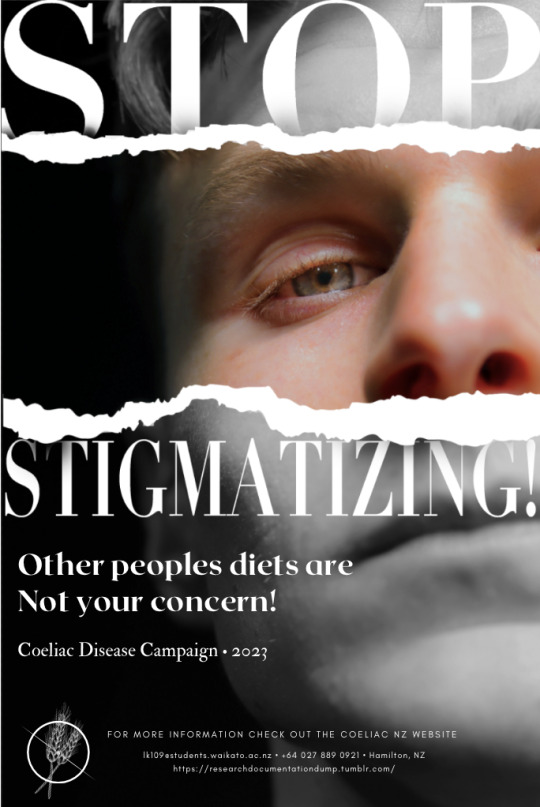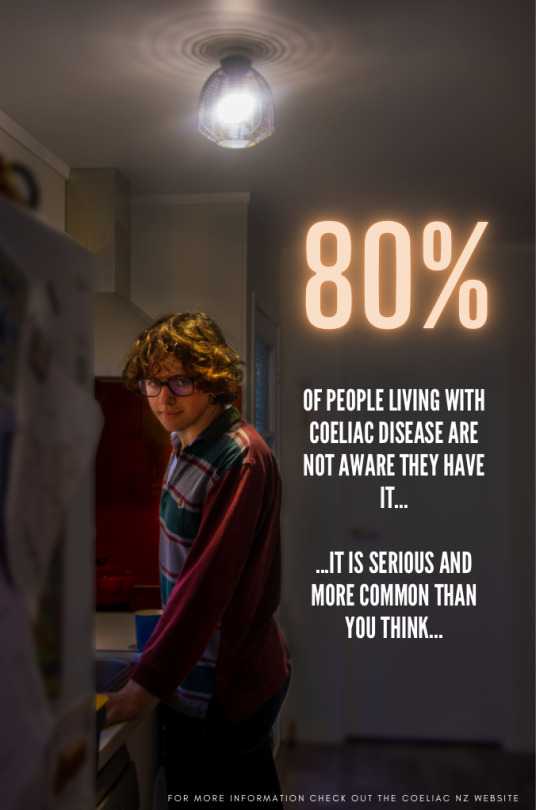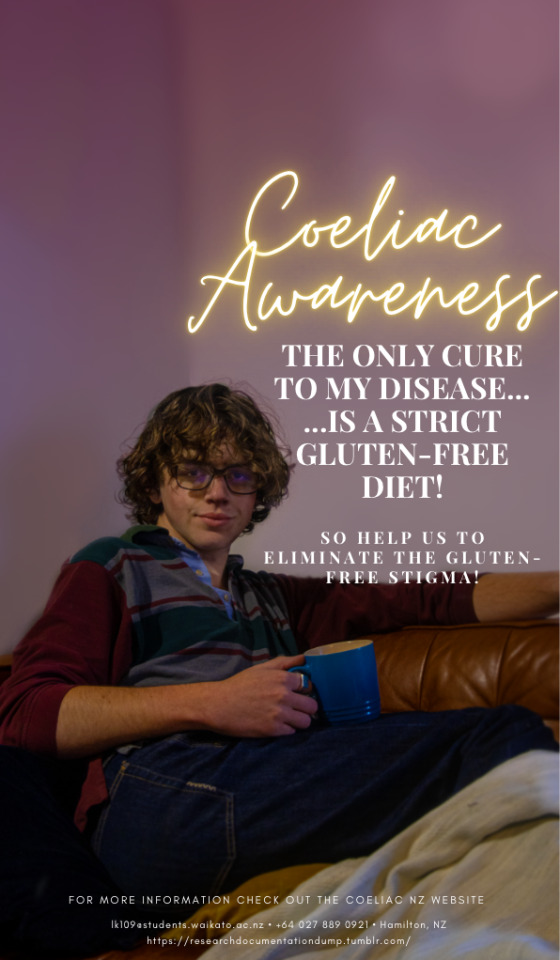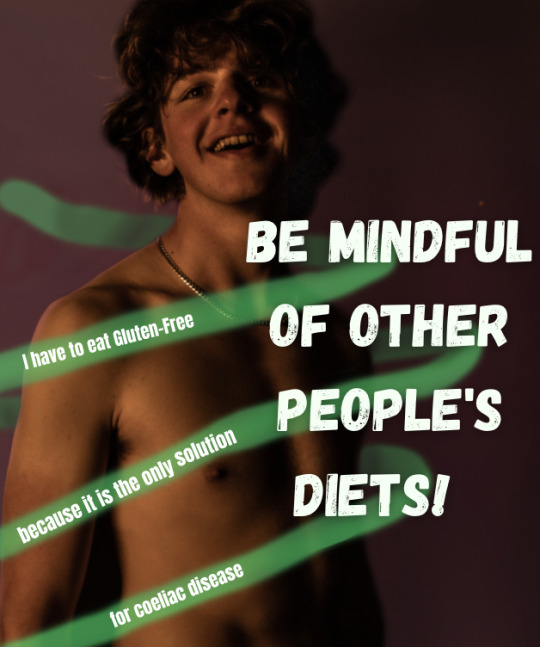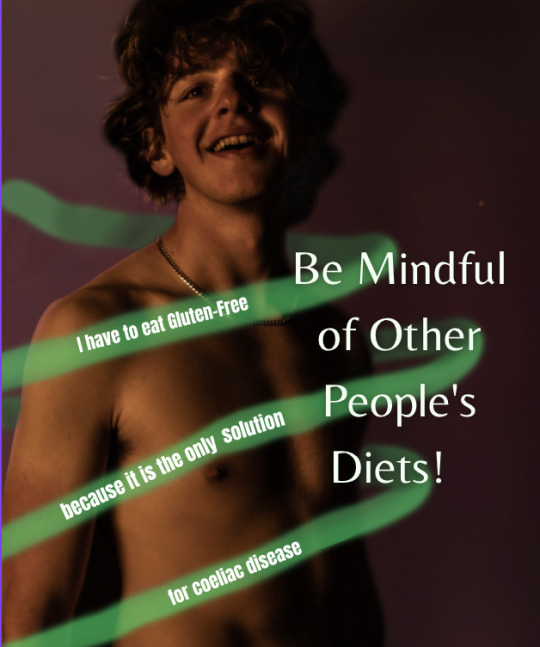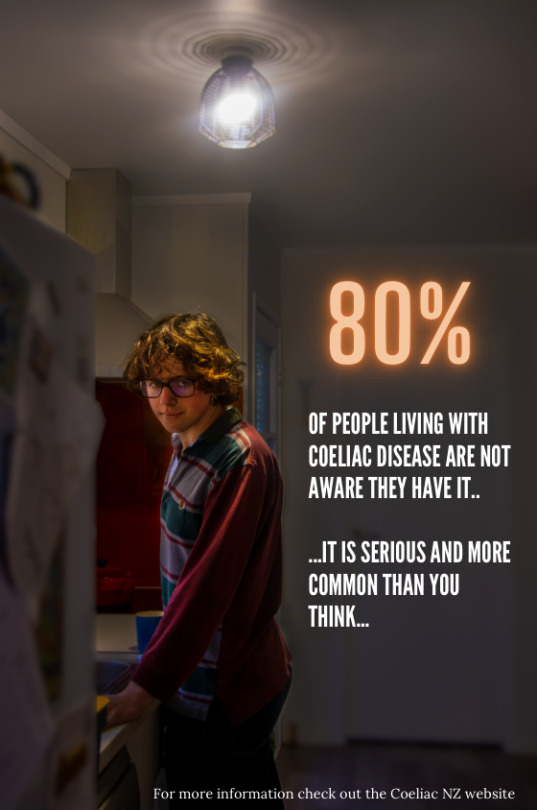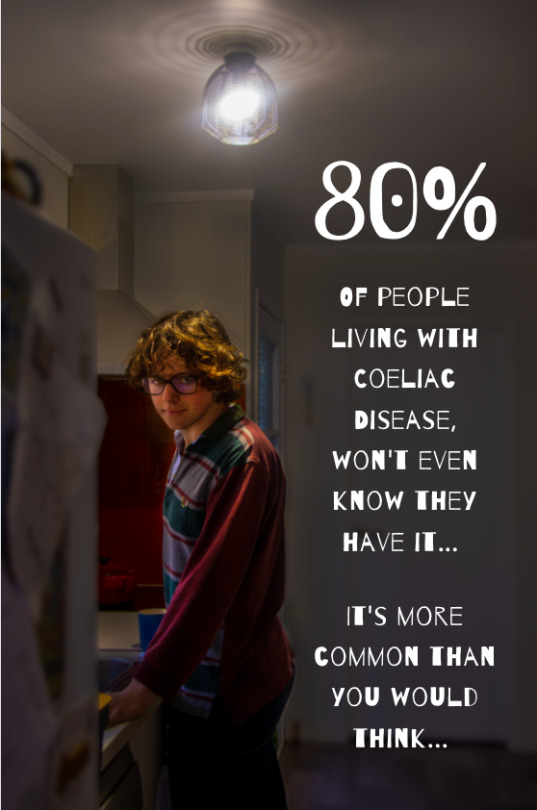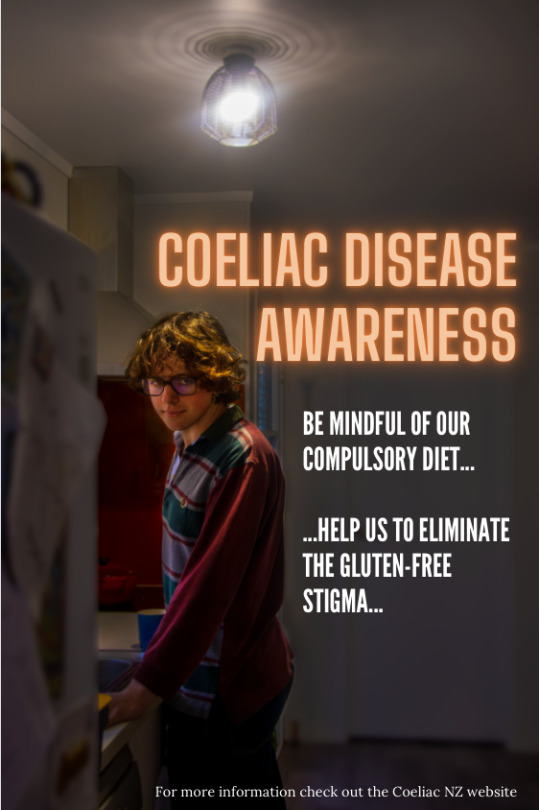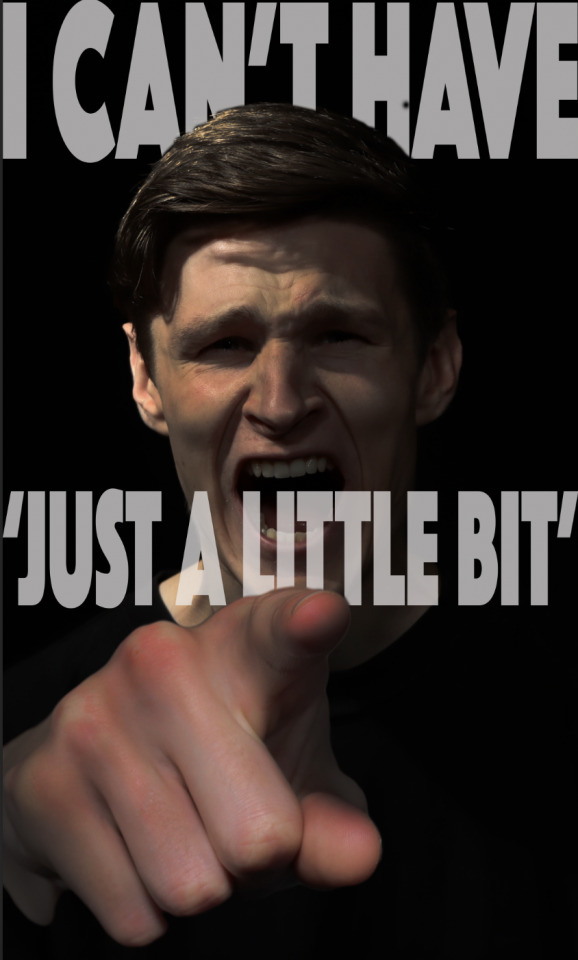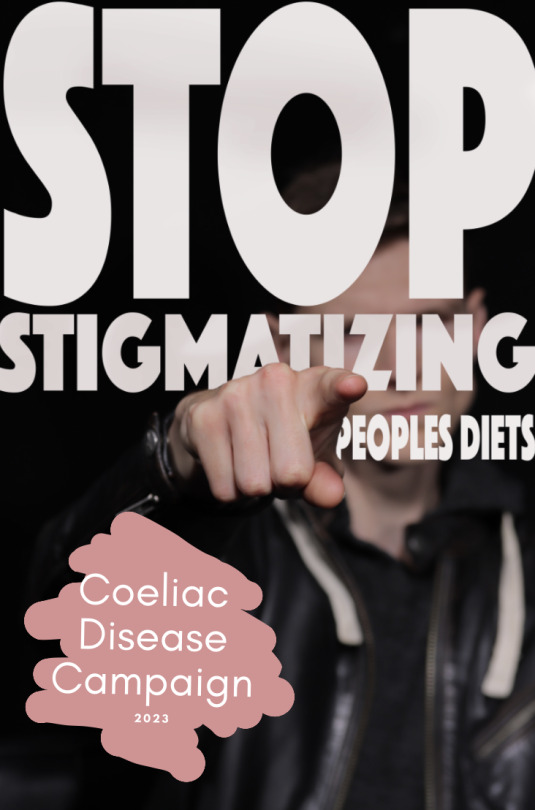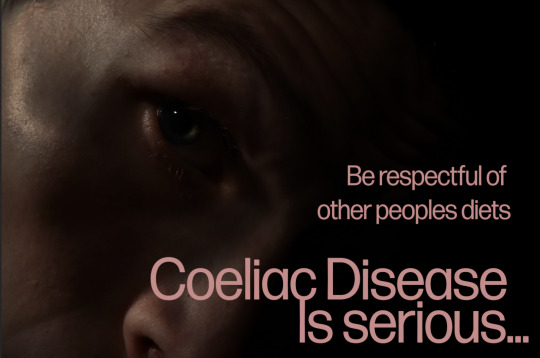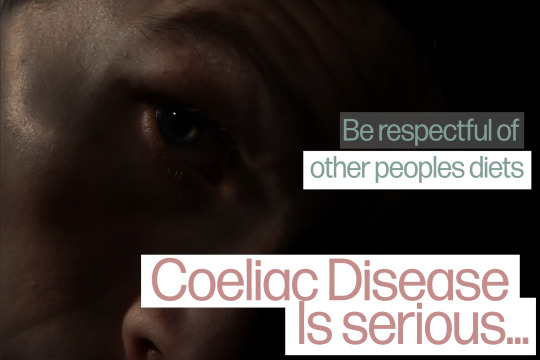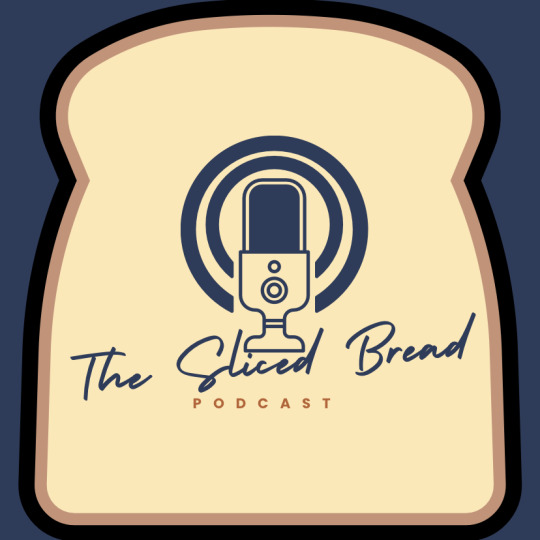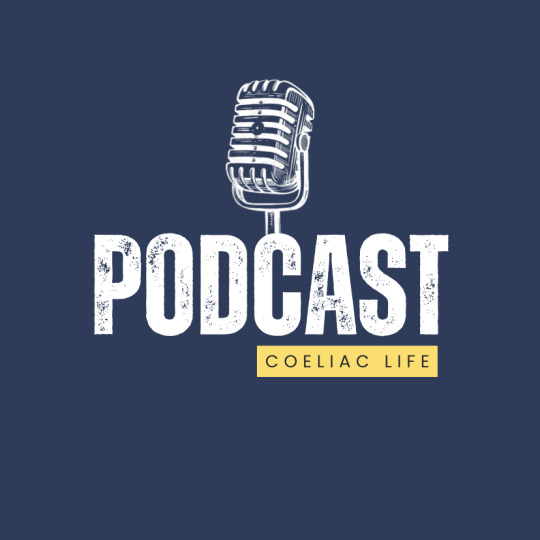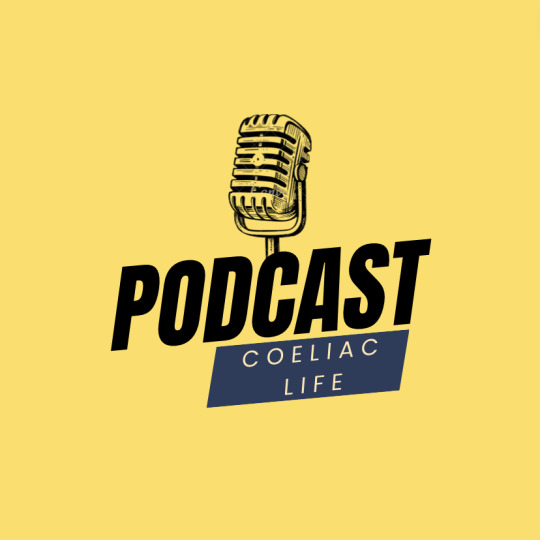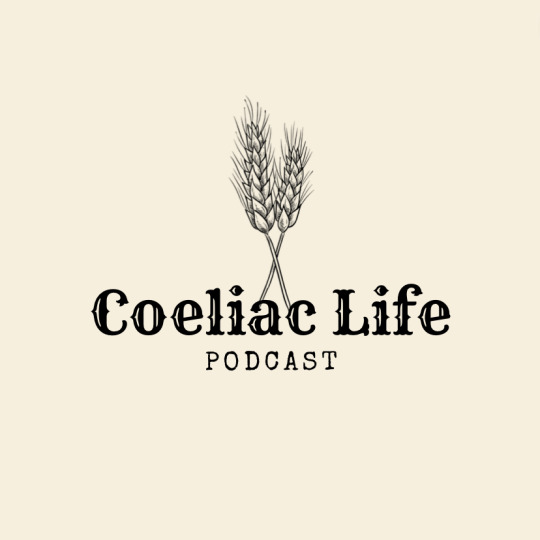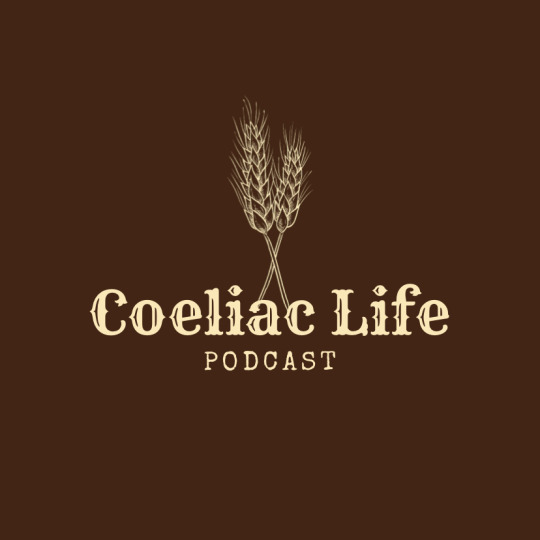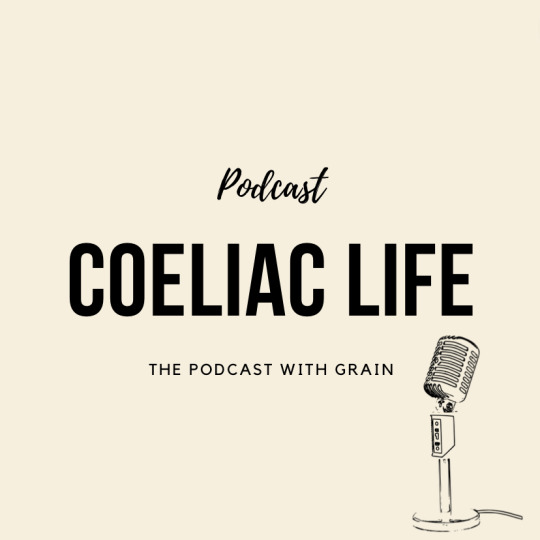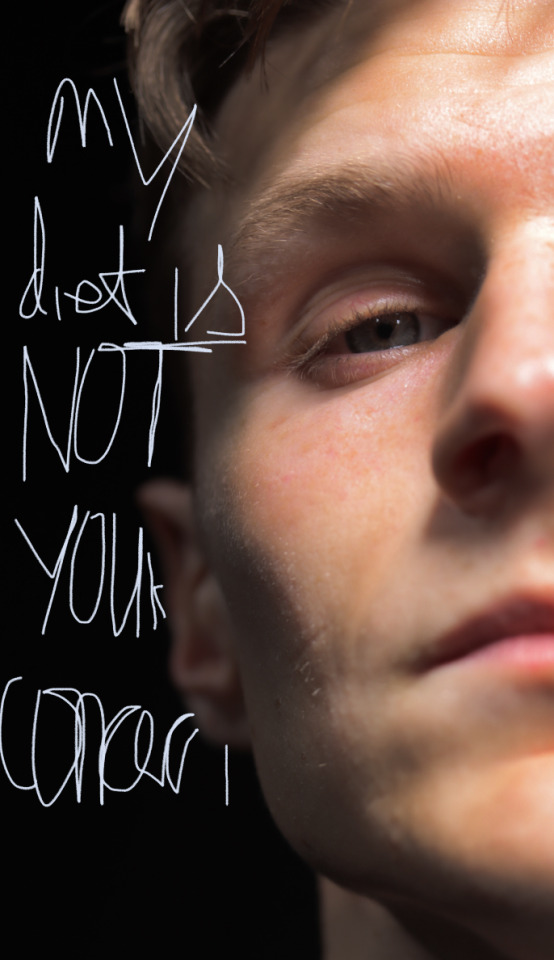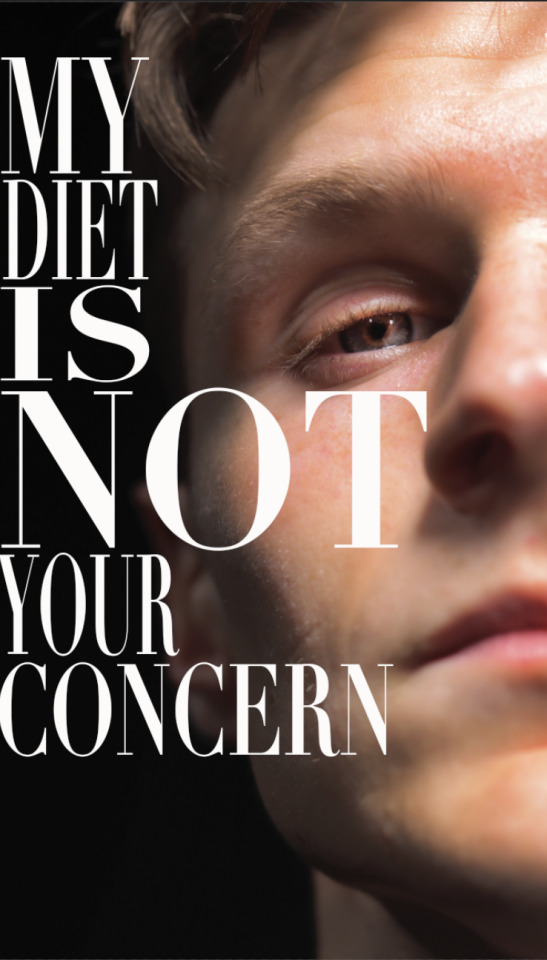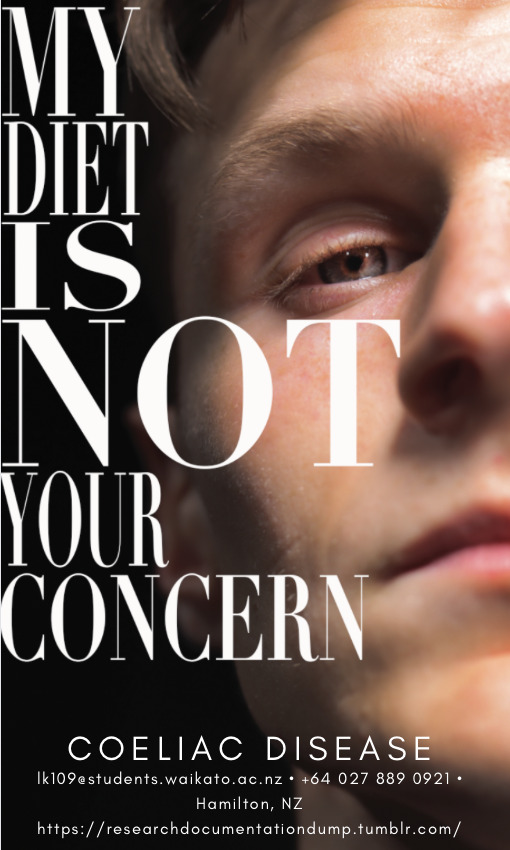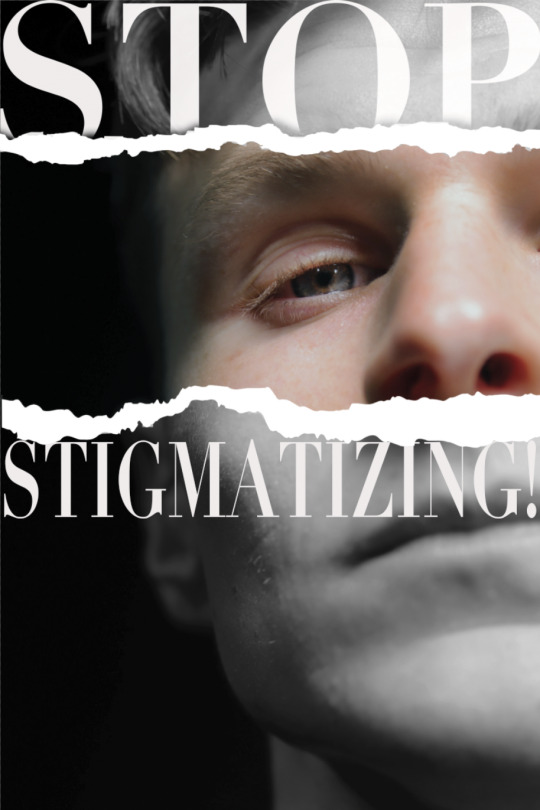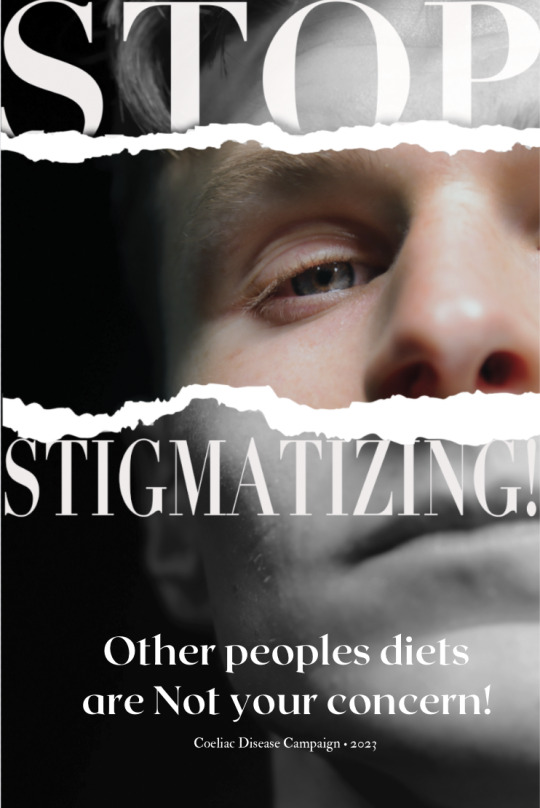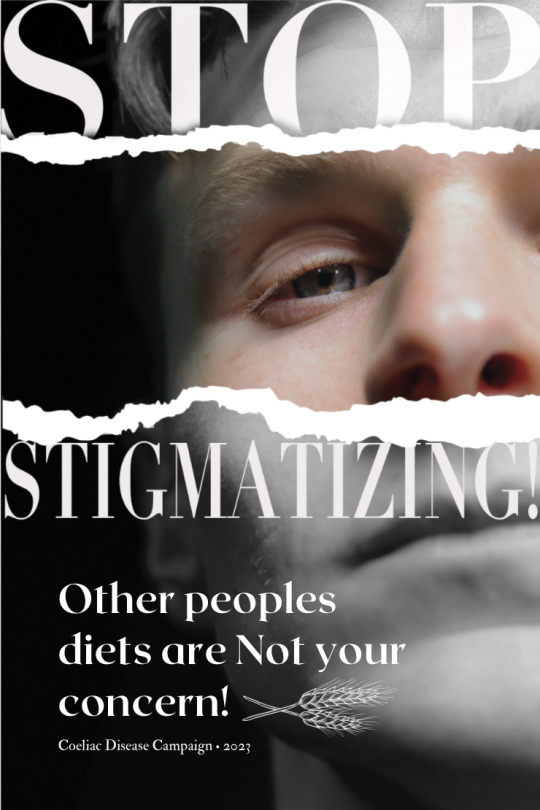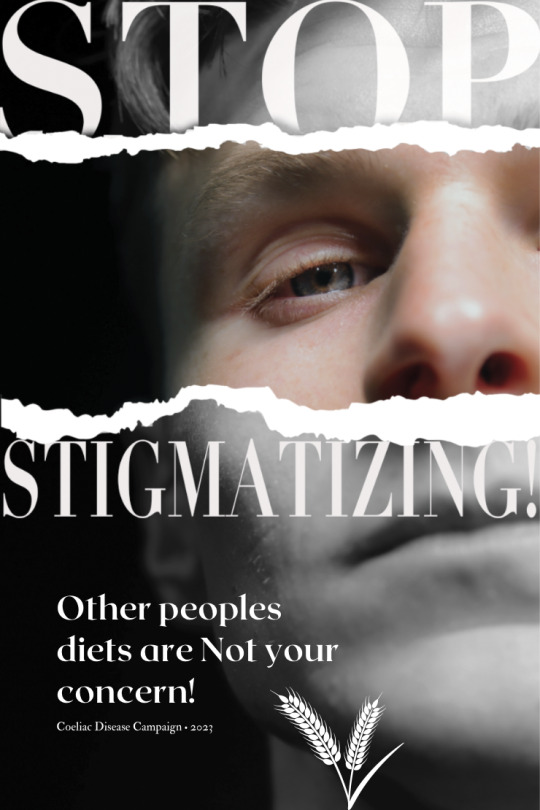Text
Final Notes...
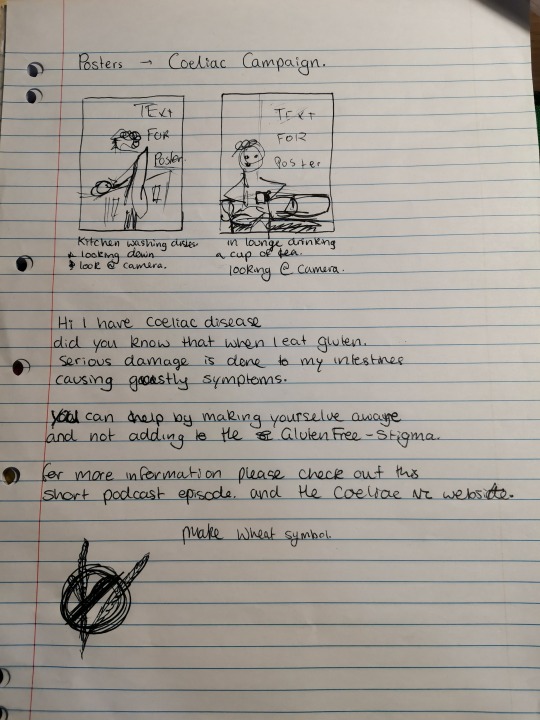
making sure that I tried to incorporate more colour and take a more positive approach.
the photos in the house provide the candid atmosphere that connects the viewer to the normality of the people with coeliac.
photo quality could have been better and more clear.
really trying to go for the personal stance
remembering to shoot with negative space in mind...
last photoshoot photos...(still getting use to using a camera)


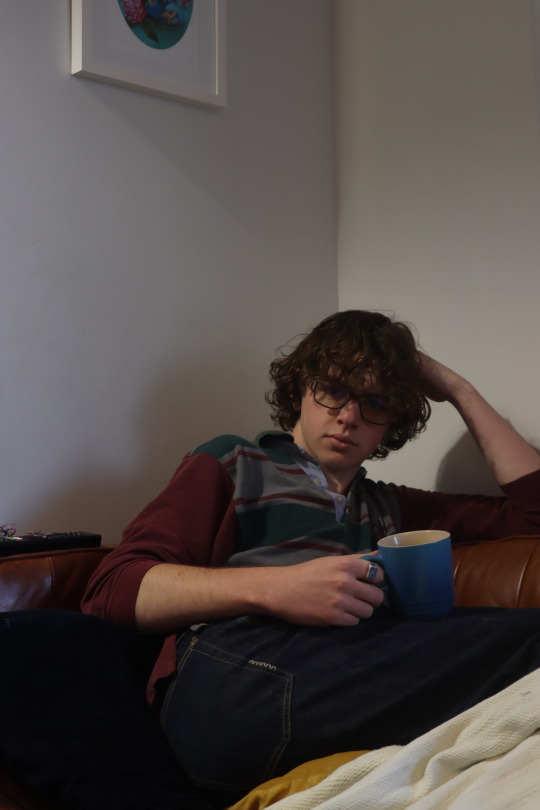








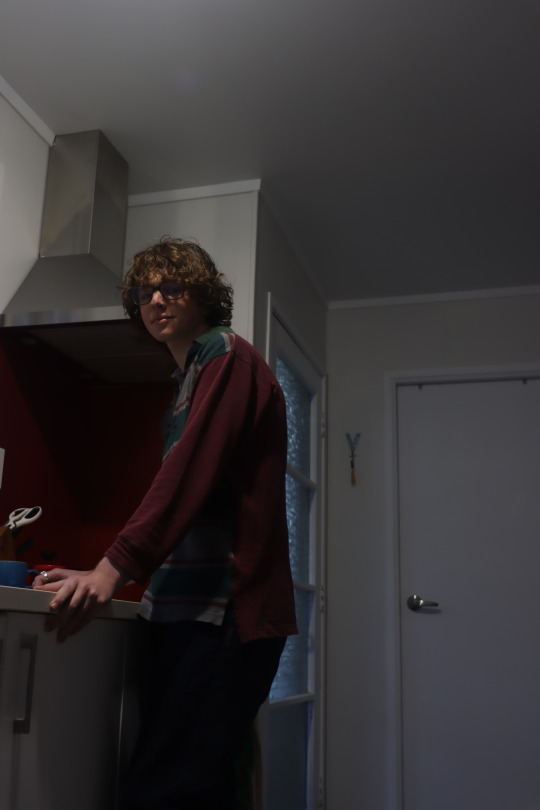

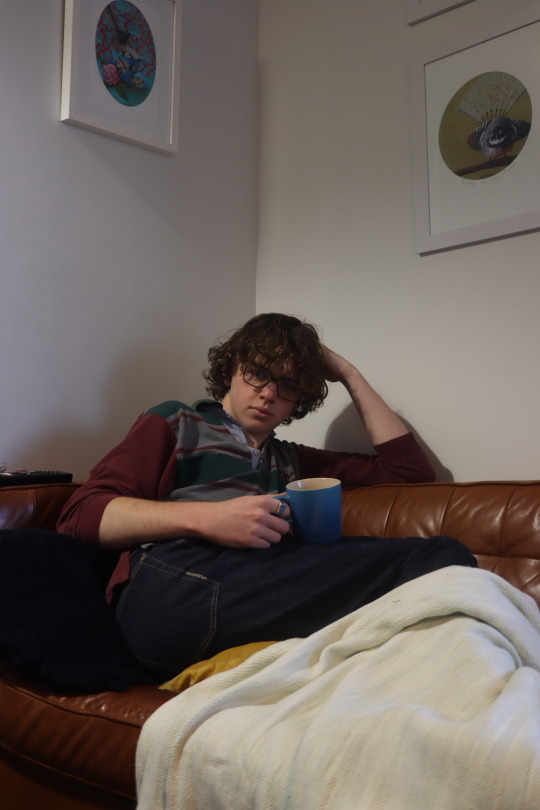





trying to get my subject matter to smile as well to help bring out the more friendly side to the campaign posters that I wanted to achieve from the beginning but instead got lost in the black and the dark more morbid approach to coeliac awareness.
I struggled a lot with with the camera settings but stuck to manual to whole time.
I was caught out some times wth not accounting for he time to adjust the camera. and therefore the actual time I had wth my subject matter was cut shorter.
I tried using a low iso all the time but my images still has sound because I had to turn it up to match the shutter speed because I didn't have a tripod. this would be a lesson for future moving forward.
0 notes
Text
Podcast
Upon experimenting with recording and episodes, the interview with my Family would take a lot of editing to pull out the good bits. I might look at recording mysids talking with some other people if I can find that they are available. My family was convenient but because they're my family the zoom became very informal and wondered off topic lots.
As for the informative episode, I will need to create a better script and specifically rehearse the words that I struggled to pronounce.
The Episode:
Final script for podcast one. it may be changed slightly if I can get someone who has the time to record it with me.
I need to think about.
pronunciation
Music
Weither i do incorporate the second episode of conversation with my family or just do this one.
Podcast cover art.
Episode 1: The context
[Intro music]
Introduce the show
Hello, Hello! everybody, this is Lucy from Media 220 The University of Waikato and you’re listening to the Sliced Bread podcast, the limited mini show all about Coeliac! the show[] that aims to inform the uninformed.
To give everyone out there a basic rundown on coeliac disease in the hopes to eliminate the misconceptions around it.
Introduce the guest and episode
Today , I’ll discuss everything there is to know about coeliac disease in an easy to digest way and I'll be making 2 main points.
What is Coeliac Disease?
And
What are the common misconceptions/Misunderstandings and the issues/problems that can arise from them ……..the lack of knowledge about Coeliac disease?
I also think it’s important to say , before we start, that I myself do not have coeliac disease….yet, however 19 relatives of mine do, along with a bunch of my friends. This is not me speaking on behalf of but rather me voicing what i've found out and experienced while living with my mother who has coeliac. and simply growing up around it. This episode aims to get out the general information helpful in eliminating misconceptions but it is important to check out the the information provided by experts at Coeliac NZ website
Right! Let's get started!
[Outro music ]
So… you've probably heard the word coeliac whether you know someone with it or overheard it in passing….but from asking around, not many people appear to actually know what it is ….oooor they think it to be something entirely different….
Which leads to my first section of what actually is Coeliac disease
Topic 1: What is Coeliac
Coeliac disease is ..Not.. a wheat intolerance or a food allergy.
Coeliac disease is actually an autoimmune condition.
Autoimmune conditions are by definition a type of condition that occurs when your body's immune system attacks your own healthy cells and tissues by mistake.
Normally, your immune system works to protect you from harmful pathogens like viruses and bacteria, but in the case of autoimmune conditions, it mistakenly identifies healthy cells as foreign invaders and attacks them.
In coeliac disease, the immune system mistakes substances found inside gluten as a threat to the body.
Those substances are a particular protein found in wheat, barley, oats and rye. This triggers the immune response that specifically attacks the cells in your small intestine lining.
Your small intestine is lined with small finger-like extensions called villi.
Your villi are responsible for absorbing the nutrients from the food you consume. When a person who has coeliac consumes gluten containing foods, their body attacks and creates inflammation and damage to the villi, which is a flattening of such, resulting in the malabsorption of nutrients.
This still leaves the question of how and who actually acquires this immune response?
Coeliac is fundamentally a result of Genetic and environmental factors.
can be the reason for triggering dormant coeliac disease in people.
Coeliac disease is linked to the Human Leukocyte Antigen (HLA) gene system, and people with one of three specific genetic factors are more likely to develop the disease, but possessing one of these factors is not a guarantee that you will get it, the disease can sit dormant in people until triggered. Things that trigger a dormant Coeliac gene can be sudden changes to lifestyle, the development of major stress, anxiety , depression or diet changes.
Coeliac disease is more frequent in those who have autoimmune disorders as well and is most commonly associated with thyroid disease and type 1 diabetes.
A person with coeliac who is undiagnosed will experience a range of horrible and unpleasant symptoms until they can be correctly diagnosed and undertake the only known treatment. A Strict Gluten-free diet.
the general symptoms of having untreated coeliac are typically the symptoms experienced from malabsorption. According to the World Gastroenterology Organization, coeliac disease may be divided into two types: classical, non-classical, and silent.
In classical celiac disease, patients have all the signs and symptoms of malabsorption.
In non-classical celiac disease, patients may have mild gastrointestinal symptoms without clear signs of malabsorption or may have seemingly unrelated symptoms.
And in Silent celiac disease also known as asymptomatic celiac disease. Patients do not complain of any symptoms, but still experience damage to their small intestine. Studies show that even though patients thought they had no symptoms, after going on a strict gluten-free diet, they report better health and a reduction in acid reflux, abdominal bloating, and flatulence.
Here is a list of some symptoms I will read out. Symptoms that can be both as a child and as an adult, some are more common in children than adults and vice versa, and a person can display a range of symptoms over others. There are many and hence why coeliac disease can be hard to diagnose and commonly misdiagnosed with other gut related issues like IBS. Anyway the symptoms people have to experience on a regular basis from undiagnosed coeliac include some of the following
Abdominal bloating and pain Anxiety and depression Attention-deficit/hyperactivity disorder (ADHD) and learning disabilities Cognitive impairment Constipation Damage to tooth enamel Delayed puberty Diarrhoea Fatigue Failure to thrive Gas Headaches or migraines Iron-deficiency or anemia Irritability Itchy, blistery skin rash (dermatitis herpetiformis) Infertility Joint pain Loss of Hair Missed periods Mood swings Mouth ulcers and canker sores Nausea and vomiting Osteoporosis and osteomalacia Pale, foul-smelling stools Peripheral neuropathy Reduced functioning of the spleen (hyposplenism) Seizures and lack of muscle coordination Short stature Weight loss
Segue (can be a sound effect, short musical clip, or a phrase)
Topic 2: What are the common misconceptions/Misunderstandings? And What are the issues/problems that can arise from lack of knowledge/misconceptions about Coeliac.
Okay my second point is …What are the common misconceptions/Misunderstandings and the issues/problems that can arise from them ……..the lack of knowledge about Coeliac disease?
Okay so i’d categorise this question into two areas. The diagnoses misunderstanding and then the social misunderstandings which lead and cater to the Gluten free stigma. Living with Coeliac disease can be challenging due to the need for a new and permanent lifestyle, leading to social and emotional turmoil for those diagnosed. The restrictive nature of the gluten-free diet can cause social isolation. Coeliac disease is much more common than previously thought, and it is increasing while remaining largely undiagnosed. Individuals with coeliac disease face physical, mental health, social, and financial burdens.
Misconceptions about its prevalence and symptoms can lead to delayed diagnosis and treatment. Coeliacs' rarity and similarity to other gut issues can also result in missed diagnosis. In the US and New Zealand, the prevalence ratios are similar, and the most alarming statistic is that an estimated 83% of people with coeliac disease are undiagnosed or misdiagnosed.(LaPook, 2009) It takes an average of four years to receive a correct diagnosis due to over 200 known symptoms triggered by even a small amount of gluten. This is particularly challenging given that 80% of food products contain gluten, not to mention items like tea bags and paper straws Stigma creates feelings of inadequacy and exclusion from normal social roles. Stigmas also interfere with maintaining positive self-concepts, which tends to lead to reduction in social network and support systems. Social stigma is the disapproval of, or discrimination against, an individual or group based on perceived characteristics that serve to distinguish them from other members of a society. the gluten-free diet is just a fad, promoted by food companies "as a way of making money", an attention seeking thing, a way to eat ‘healthier’ which is interesting because eliminating food from your diet, that you don't need to eliminate for actual health reasons, can actually cuase more problems. it's always worth consulting a doctor anyways before removing certain foods from your diet For these people, the phenomenal popularity of gluten-free diets has been both a blessing and a curse.
The Curse
There is an importance of distinguishing between food preference and food-related sensitivity, allergy, and/or disease. Even trace amounts of gluten can cause extreme illness for some individuals with gluten-related health issues. The growing popularity of the gluten-free diet has led to misconceptions about what constitutes gluten-free food. On the other, it’s born of a storm of misconceptions about what actually constitutes gluten-free food, placing coeliacs at risk of ingesting gluten through products advertised as so-called gluten-free.
People often feel pressure to disclose their disease in social situations and risk being misunderstood as following a gluten-free lifestyle, just to be sure that what they're about to eat isnt going to cause actual genuine harm to them.
Upon reading people's personal experience I found that a lot of people with coeliac commonly meet with people who don't take their disorder seriously when eating out. A common misunderstanding is when people, commonly restaurant servers,
don't understand the difference between being coeliac and going gluten-free as a lifestyle choice.
This is often accompanied by expressions, comments, and eye rolling that entertains the idea that they are gluten-free to lose weight or on a fad diet.
Coeliac disease treatment, being the gluten-free diet, is likened to the Atkins diet, which is a low carb diet for weight loss. When its expressed that going gluten-free is for medical reasons.. It is common that -that is viewed as attention seeking and difficult instead of seeing it as someone who just doesn't want to get sick. Unfortunately this leads to people feeling embarrassed to ask for gluten-free meals out of being judged.
Adding to this for me…i’m not going to lie, growing up im guilty to say younger me was embarrassed to eat out with my mom on some occasions because she'd have to ask for gluten free food and check that it really was gluten free and this involved often talking to chef or getting waiter's attention…. None of this at all was making a ‘big deal’. But I always felt that people would be judging us and thinking us to be picky eaters or complainers.
The Blessing
The upside….. This gluten free uproar has resulted in increased demand for gluten-free food products, meaning More available gluten free foods
It was hard to come by gluten-free products, and if you did, they were usually awful tasting.
People with coeliac range in sensitivity to gluten consumption, some people have extreme reactions to the smallest bit of cross contamination and others do not …. But symptomatic or asymptomatic, the same detrimental damage is done.
Clear food labelling and taking dietary restrictions seriously could decrease the risk of cross-contamination and reduce the need for individuals with gluten-related health issues to disclose their disease. People need to avoid condescending attitudes towards the gluten-free diet and to respect individuals' dietary restrictions without judgement.
More research is being done but cooking foods at extreme heats does not kill the proteins found in wheat,
Having just a little bit is still so dangerous
And unfortunately the people out there who praise and hold the Gluten-free diet as some kind of angelic health discovery, may unintentionally be contributing to the environment where food providers and servers are turning to dismiss gluten-free eating as a silly fad that isn't worth taking seriously. In affect, making life more challenging for those with coeliac disease
Segue (can be a sound effect, short musical clip, or a phrase)
Outro:
All right, I hope you enjoyed that episode about Coeliac Disease and some of the issues around misconceptions and how important it is to be careful about what we say and respond to a person's disclosure to their disease. Thank you to the listener for listening all the way through. I hope that you take some valuable information from this episode and apply it in one way or another into your life.
[next time you're about to judge someone on their gf choice of meal in the cabinet at the cafe, think, is it really your place to say something, is it affecting you. No!, is it any of your business. No.
I look forward to serving you in the next episode as well, where I'll be joined by 4 people in my life who all have coeliac disease for an open discussion around their experiences with it. I hope to see you then. Goodbye!
[Closing music]
0 notes
Text
Posters
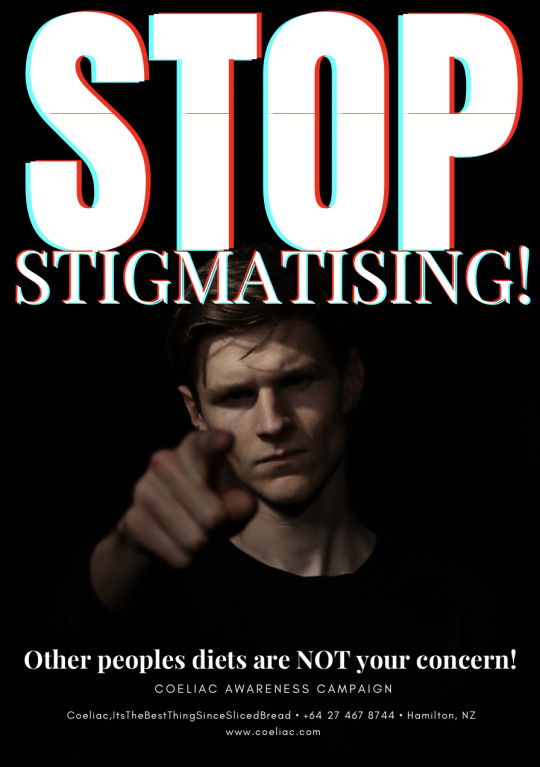
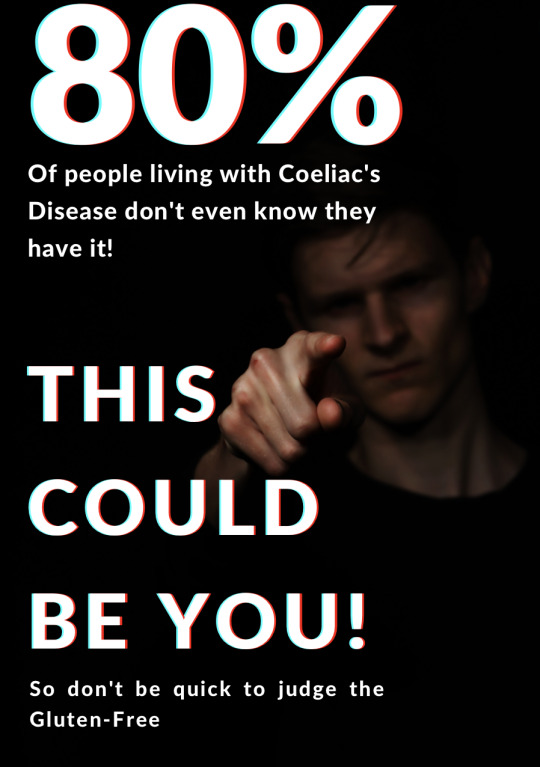
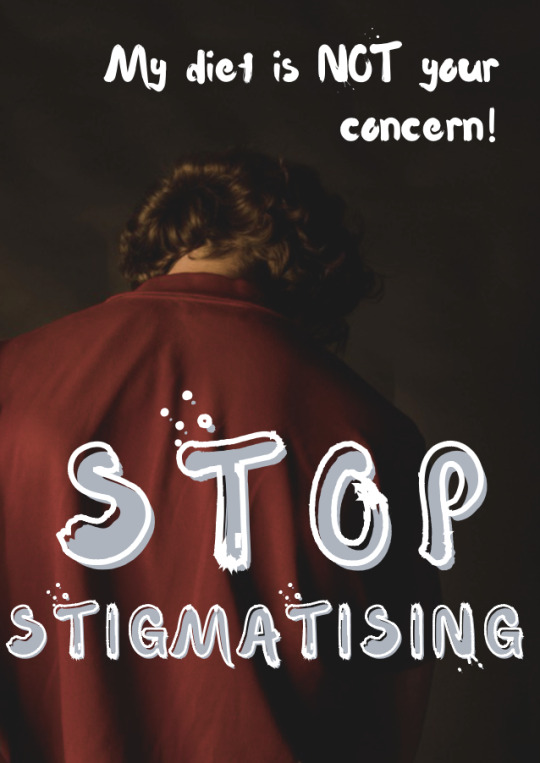
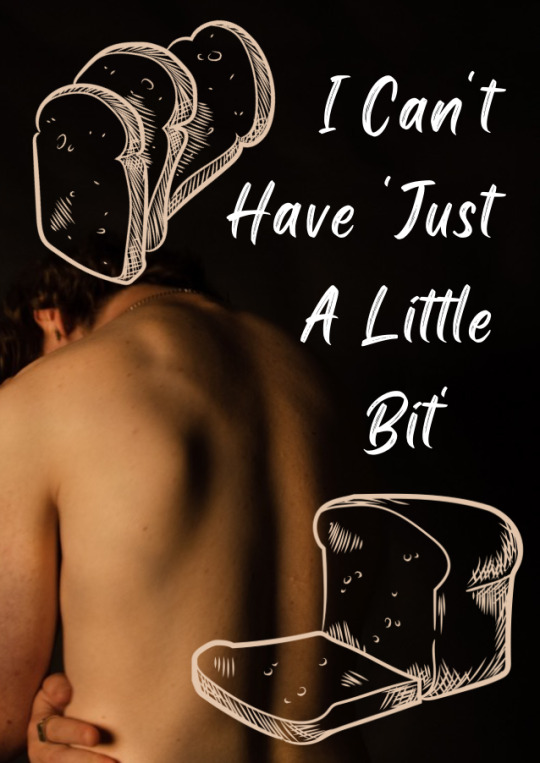
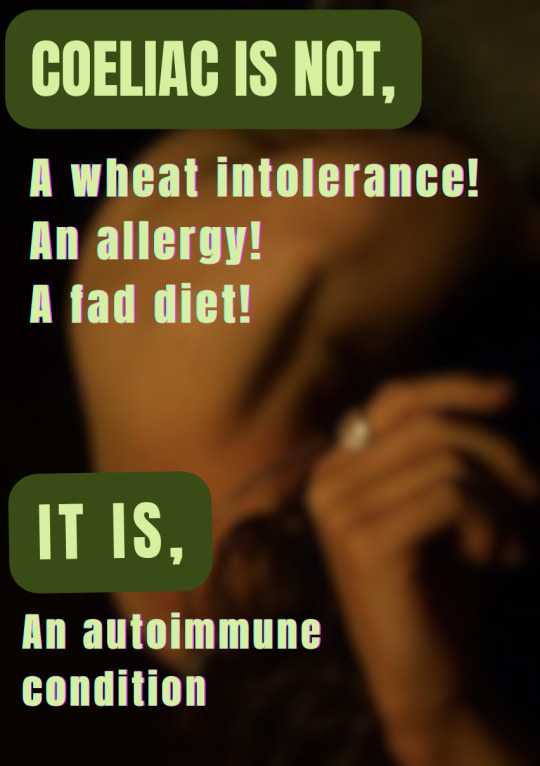
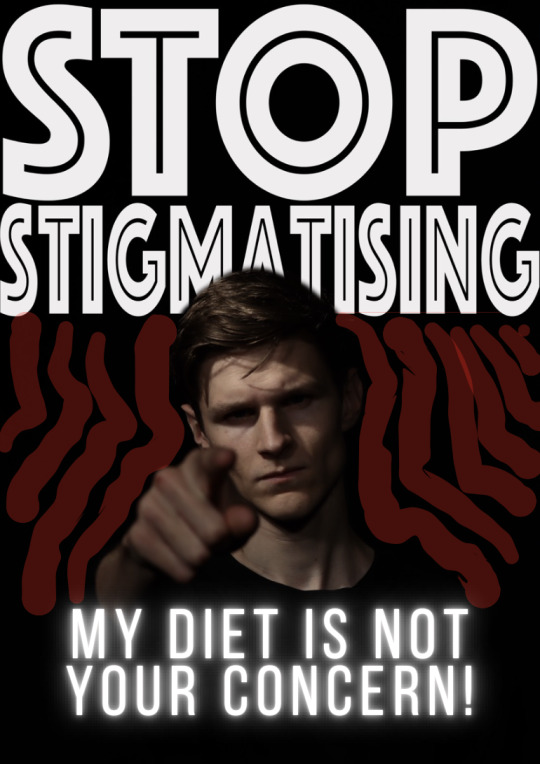
What I have currently...
Phrases
Revisiting what I Liked...
I like the small text on the Top Left poster that offers further action and this could include links to websites like coeliac.nz or podcasts etc..
I like the STOP Stigmatising it is bold and captures attention.
Using Phrases like "No I can't have just a little bit" and then a website link would be good as it is incorporating what a lot of people are having to say... much like "I have coeliac and yes I can eat potatoes"
I like the way the Text sits behind the subject and pops him forward, This draws attention to his action of pointing the finger.
Revisiting what I didn't like...
Adding random stuff to fill space... more is less. negative space if used correctly can be impactful.
I didn't like the lack of context on some poster and in the future providing a website or a phone number to call would be good..
Phrase Brain Storm
STOP Stigmatising My diet is not your concern
('My' personalises the statement with the intention of making it relatable and striking empathy with the reader)
No I can't have just a little bit
I may need to clarify and say a little bit of gluten or clarify by mentioning the word coeliac and pointing the viewer in a direction where they can find more out on the topic.
Coeliac is not a fad diet
These are the too I like and appreciate the others aren't that fitting so I will work and add to these....
Photos
Three Photos: Eyes, Back, Pointing Finger
I'm going to plan another photoshoot with the goal to get these three things and experiment with improving the ones I already have.
Possibly experiment with taking photos on my phone that are more candid
Equipment:
Camera & Tripod
Macro Lens
TV studio and lighting (w/ Oliver)
My models, Ethan & Nathan
Image by starline on Freepik
0 notes
Text
PHOTOSHOOT
Number 2 of Nathan. face shots
I wanted to have shadows to bring across the negativity of emotions, and because it is commonly associated with death and illness, black is a very isolating shade. I wanted to utilise this with the black backdrop.
I however think it is time to experiment with Candid shots before I begin editing.
Another minor thing is that Coeliac disease is commonly associated with women and although it is common for men to get I feel it would be somewhat impactful to have a male on my coeliac posters seeing as a lot of posters already feature women.

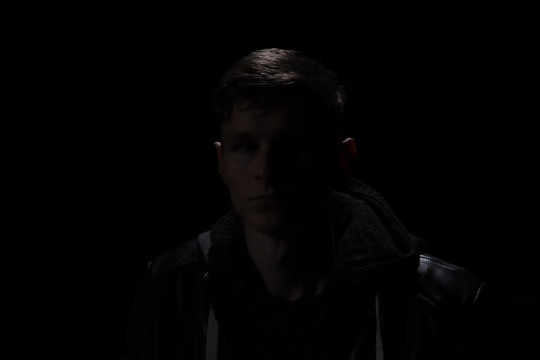












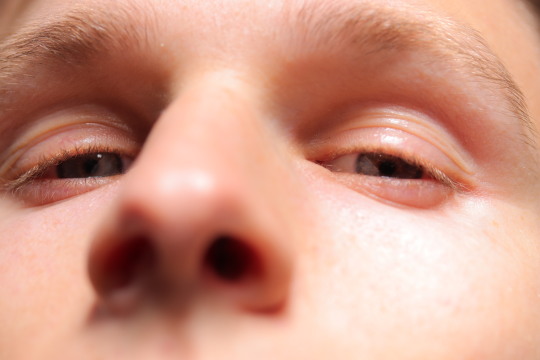
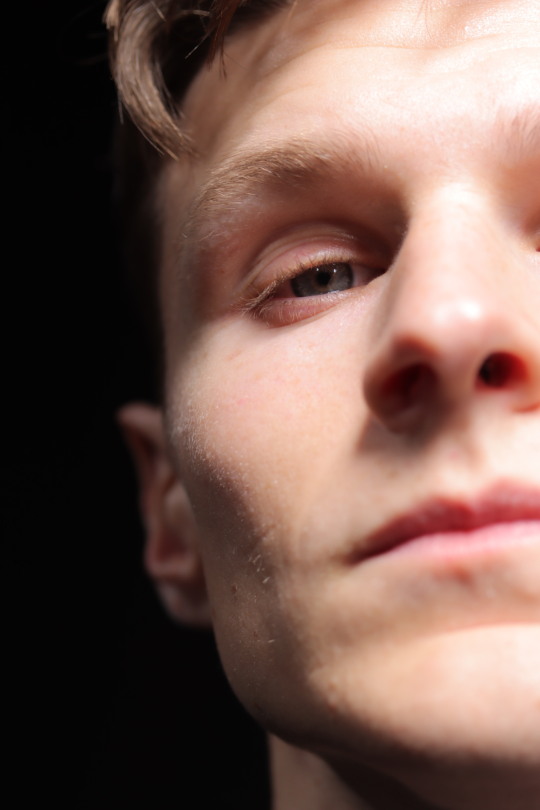








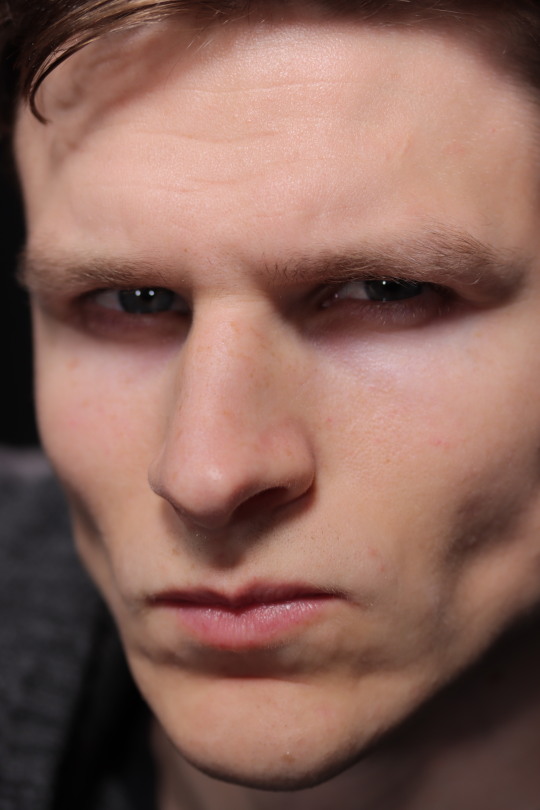
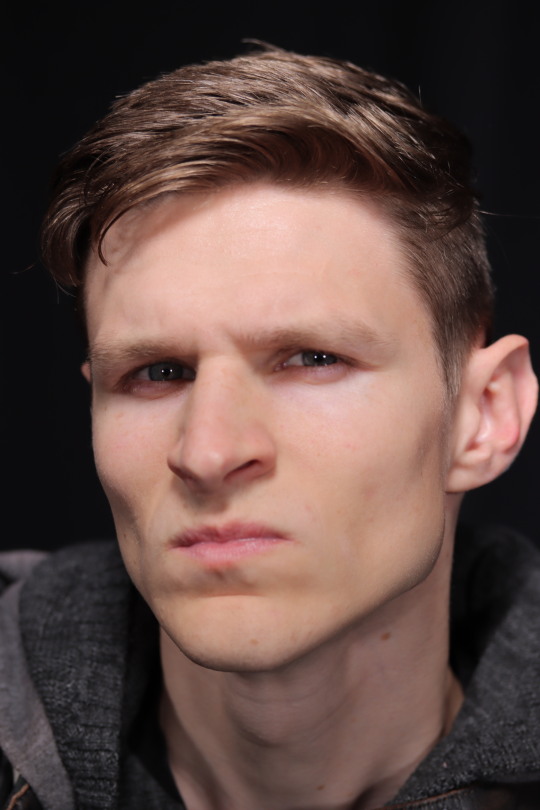

0 notes
Text
Podcast Artwork & Theme Tune
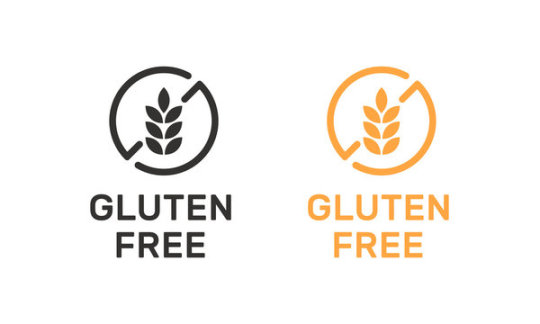
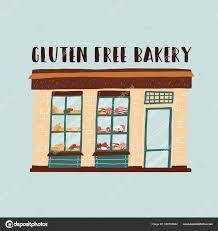
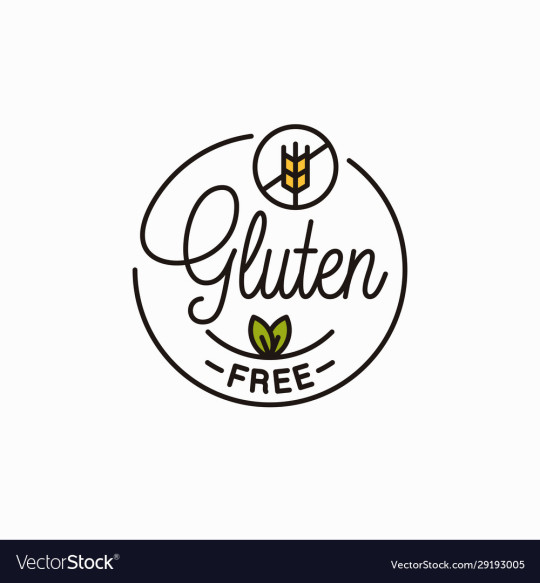
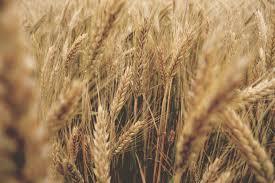

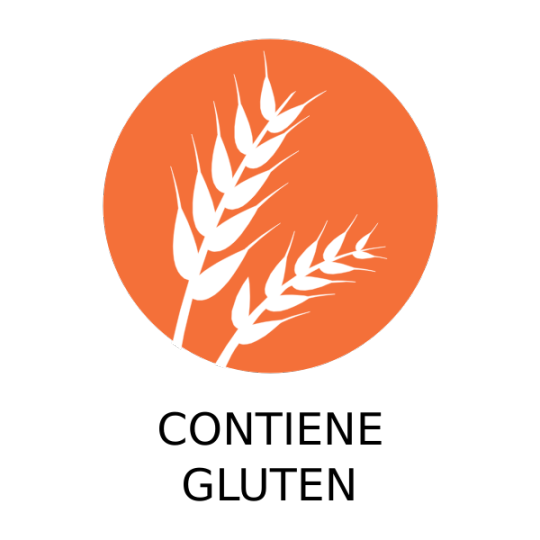
Tunes I could use for them or atmosphere in my Podcast. They are both licensable and free to use.
some logo ideas... played around on Canva.
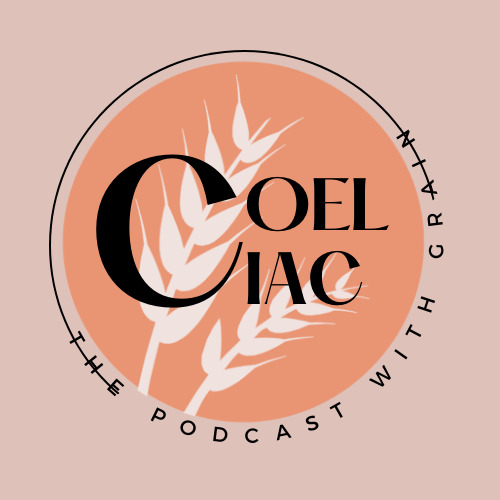
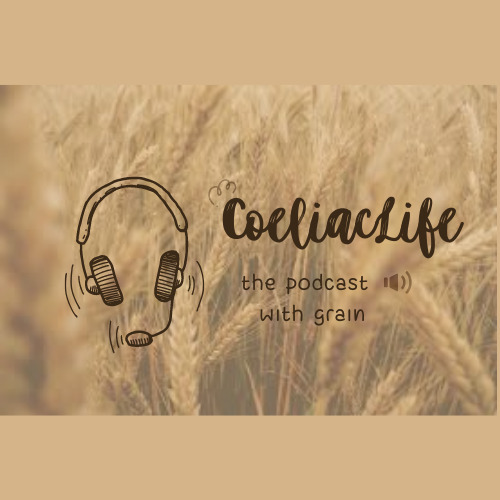
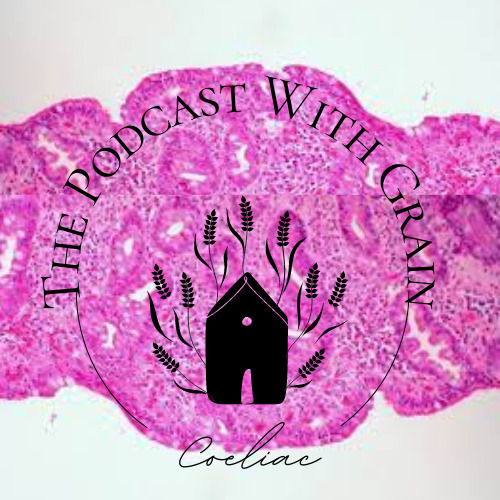
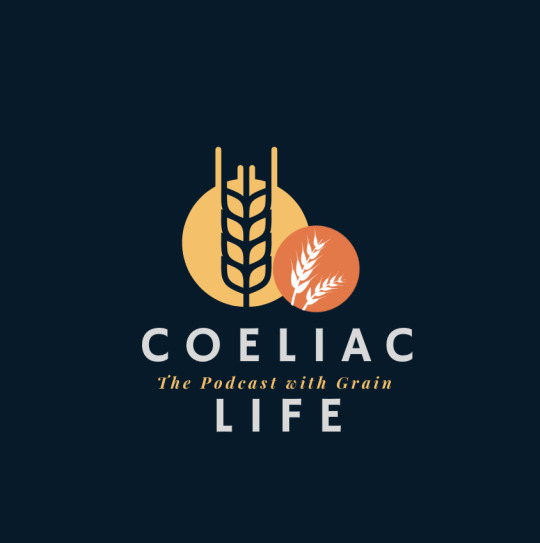
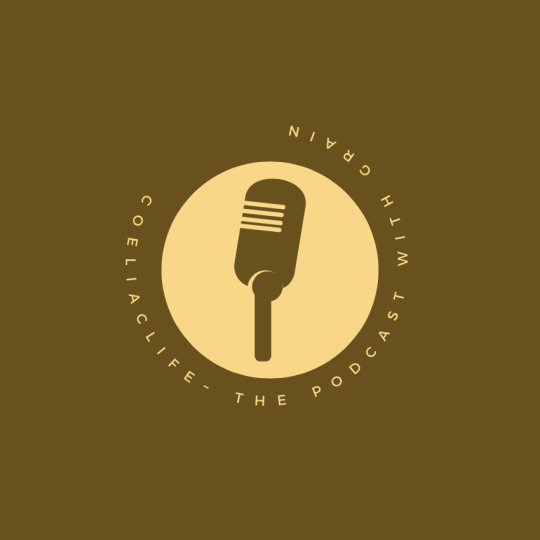
0 notes
Text
Photography Post #2
Prototypes and Possibilities: First shoots
First photoshoot attempt problems:
On a need to 'figure out' for next time.
Lighting (might be easier to hire the 3 point lighting kit from the AV loan pool instead of the trigger lights)
Camera modes I need to play around with them. Must figure out timer so I can use myself as a model.
I need to have a clear shot list with end product vision in mind.
Macro lense is a good one for expressional nuances
I think the studio is a great place to for basic abstraction for close up facial expressions. However I feel three point lights and subject may well be better suited to a more natural habitat where candid and conceptual ideas can mix.
I think intentional blur could be of interest.
LINKS
at lot of the mental health campaign posters or photographs are dark, moody and use contrast and shadows to bring out the 'stuck' and hopelessness towards being unable to see light at the end of a tunnel. The similarity here is that this is often a provoked feeling within people dealing with being stigmatised or judged unfairly for their food choices. faces in a lot of posters around depression specifically are hidden from the viewer or turned away from the camera. although this is affective I would want the eyes of my subject to stare directly back at the viewer. looking into the lens. confrontational. pulling the viewer into the context of the image and hopefully empathic.
POINTS Discovered
string tangled is often a great generic way of conceptually representing a vexing situation or one of great irritation.
I can keep multiple exposures in mind and layering photos.
if I am creating posters then I must remember that most posters especially if displayed in bus stops are portrait orientated.
if im wanting to maybe place my viewer into a more relatable context to the image I might consider candid shots in a setting outside of the TV Studio. for example I might consider shooting on campus by a cafe or in the cafeteria when closing
all photos ill upload to my memory stick so I can edit them wherever.
Props
a knife and hands from different angles bread of some sort string
I need to have a better visual plan in mind and insure that I have all the props needed. all three of my photoshoots were more or less winged and specifically focused on expression. moving forwards I would like to play around with taking photo of my subject in a more natural setting.

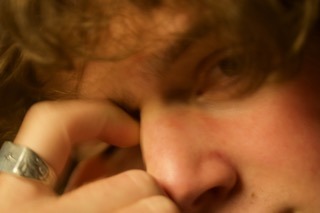
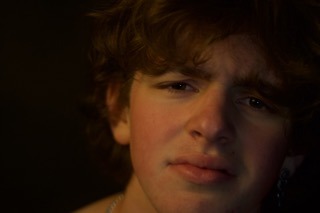
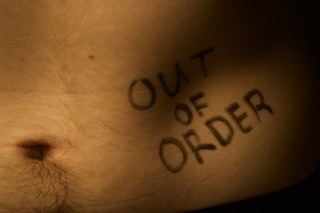

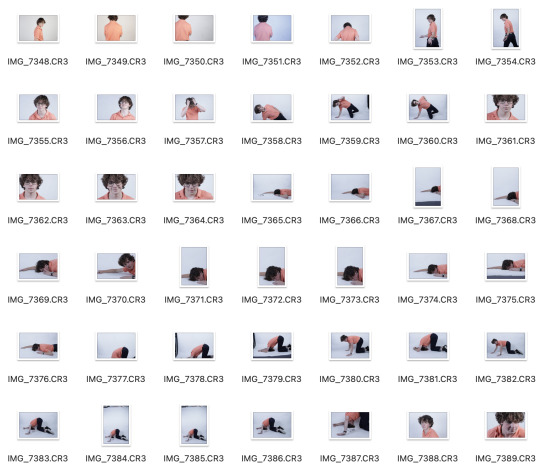









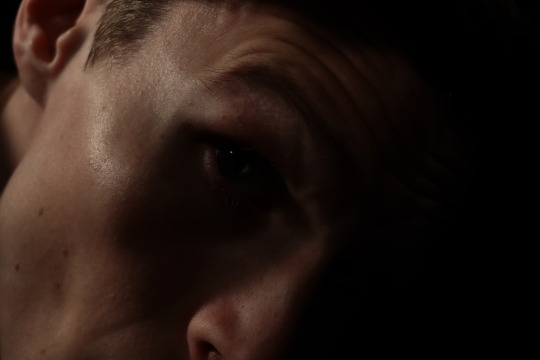







above are some photos taken from some prototyping photoshoots, these are attempts ....emphasis on attempts
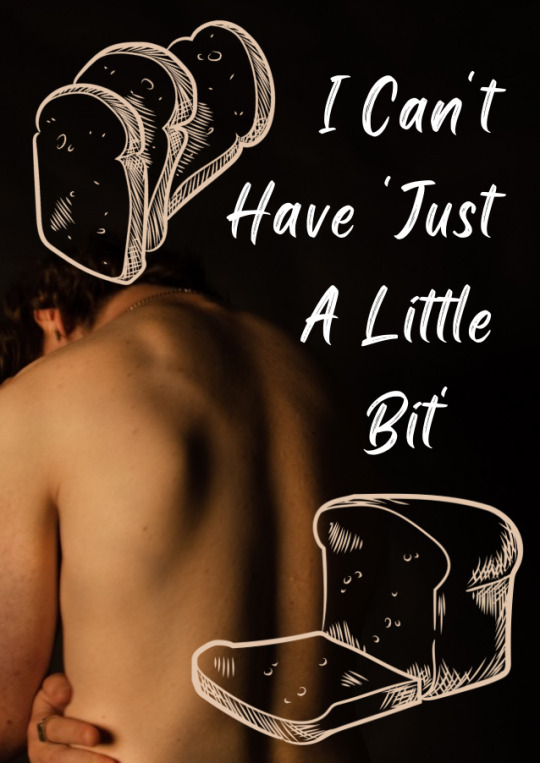
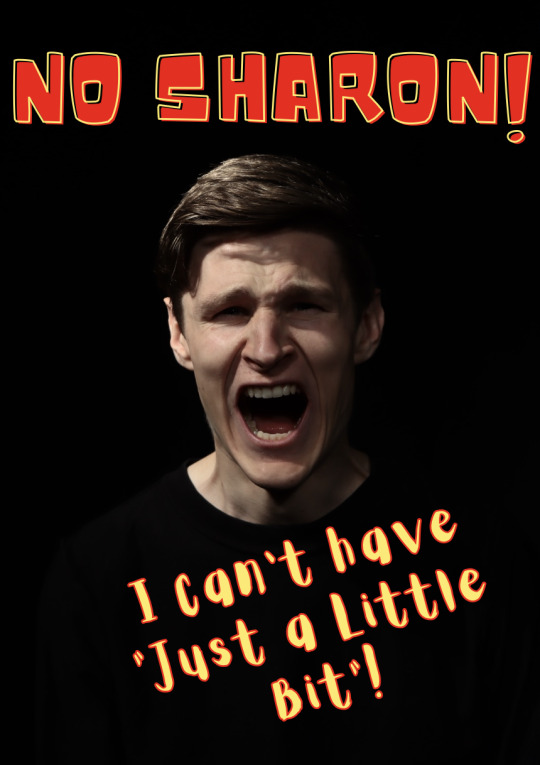
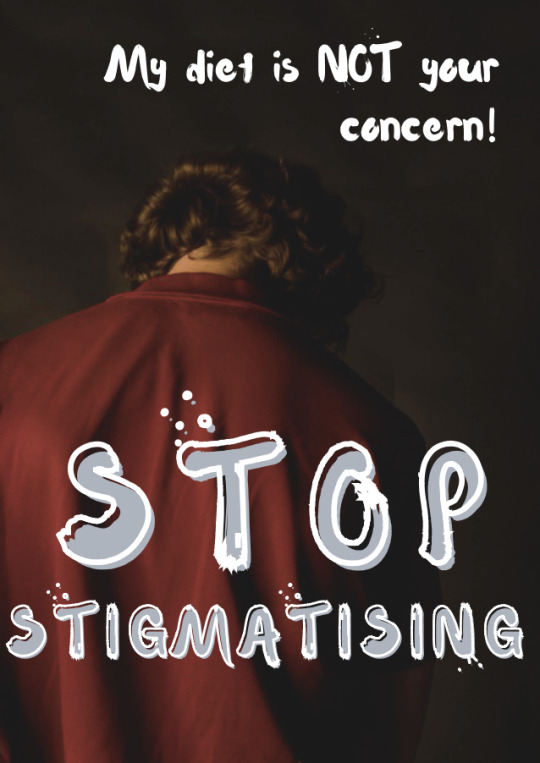
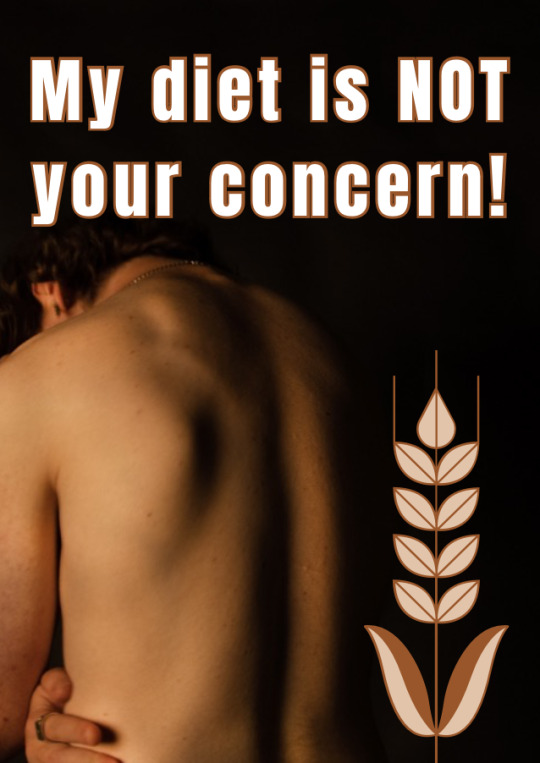
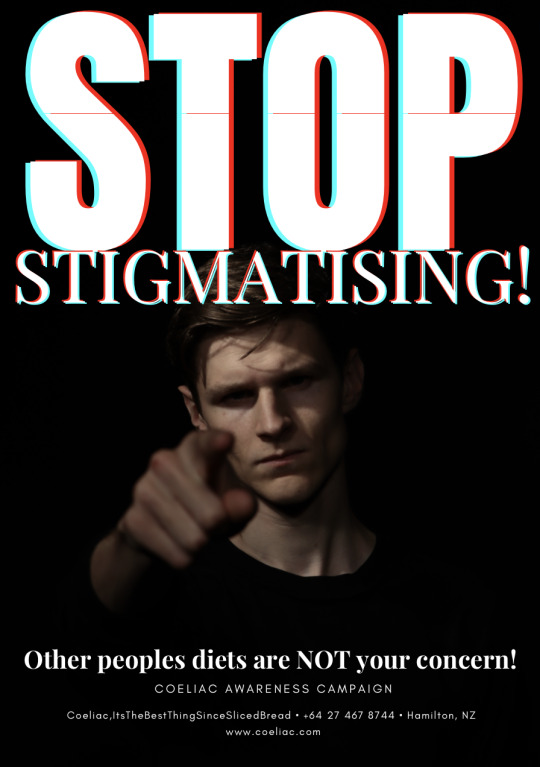
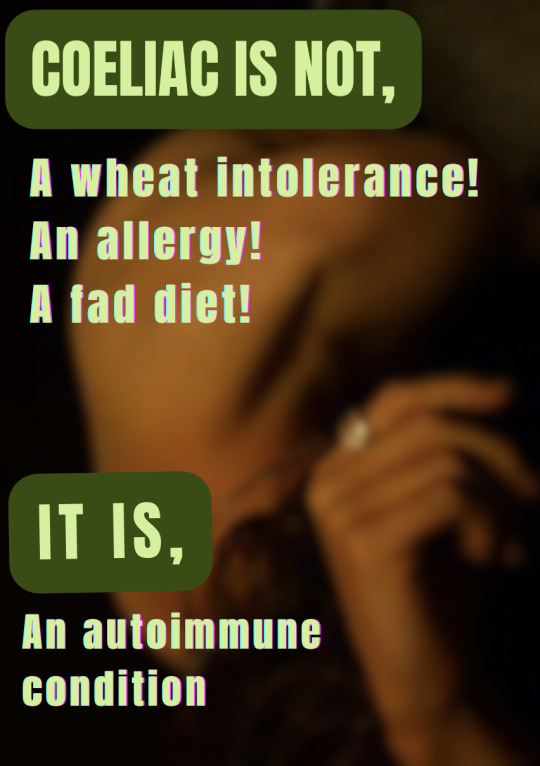
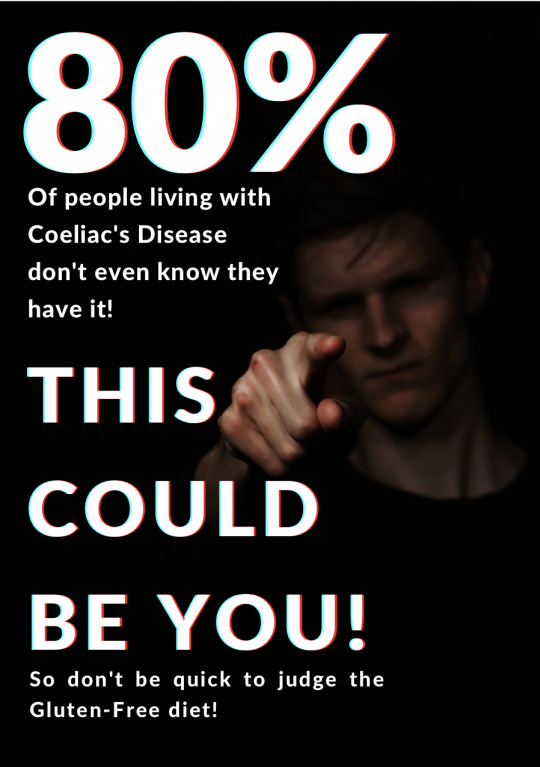
playing around with Lightroom and canva to begin experimenting with poster layouts, fonts, images, the phrases used.
I think I would like to play around in photoshop to push the person behind the text and to have the words more apart of the image instead of on top of the image.
Some phrases I could use:
No Sharon! I can't have "just a little bit"
Having coeliac and eating gluten free in not a fad diet! it is a necessity
0 notes
Text
Photography Post #1
Key Word: Coeliac Awareness
so I am aiming to place the viewer into the images through their empathy or ability to connect to certain feelings. My theme statement of direction is : How someone with coeliac can feel when they are misunderstood. If my photos can somehow make my viewer feel these feelings then perhaps they can then relate without needing to have coeliac to do so.
my word and photo bank is below:
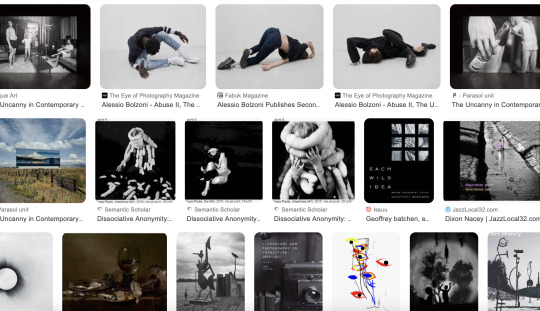

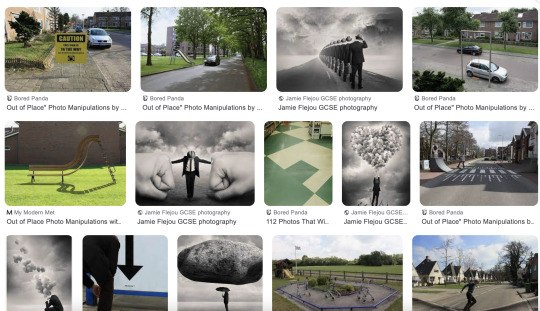



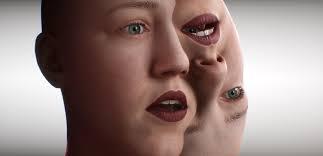




Some ideas that have been collected around how to visually represent certain feelings through facial expressions especially when misunderstood are:
Confusion - a person's eyebrows may be raised, and their mouth may be slightly open, indicating a sense of puzzlement or bewilderment.
Frustration - a person may be clenching their jaw or fists, and their brows may be furrowed, suggesting a sense of irritation or annoyance.
Isolation - a person may be standing alone or away from others, with their arms folded or their head down, conveying a sense of loneliness or separation.
Resentment - a person's face may appear tense or tight, and their eyes may be narrowed or glaring, indicating a sense of anger or bitterness.
Sadness - a person's face may be downturned, and their eyes may appear watery or tearful, suggesting a sense of disappointment or sadness
Feelings of being misunderstood could also be conceptually and visually displayed in a few ideas depending on a desired message and tone:
Multiple Exposure: Using multiple exposure, a photographer can overlay images of the same person in different poses, each expressing a different emotion related to being misunderstood. For example, a confused expression can be combined with a frustrated expression and a sad expression to create a visual representation of the various emotions that a person might feel when they are misunderstood.
Shadows and Lighting: The use of shadows and lighting can create a sense of isolation and loneliness, suggesting the feeling of being misunderstood. By placing the subject in a dimly lit room or creating harsh shadows around them, the photographer can convey a sense of being alone and isolated.
Close-up Portraiture: Close-up portraits can be used to capture the nuances of facial expressions, which can convey a wide range of emotions related to being misunderstood. A photographer can capture the subtle changes in a person's expression as they move from confusion to frustration, anger, or sadness.
Candid Shots: Candid shots can be used to capture the moments when people are feeling misunderstood in real life. These shots can be taken in a variety of settings, such as at work, in social situations, or during family gatherings. The photographer can capture the expressions and body language of people as they navigate their feelings of being misunderstood.
Metaphors: The use of metaphors can be a powerful way to convey emotions related to being misunderstood. For example, a photographer could capture a person standing in a field of tall grass, representing the feeling of being lost and isolated. Alternatively, a person could be photographed standing against a wall, with their hands up, as if they are being trapped and unable to communicate their thoughts and feelings
I like that these images could potentially be incorporated with words to emphasise their meaning more. These would be along the lines of Coeliac is not a fad diet. it is not an allergy or a food intolerance. it is actually an autoimmune disorder. (there is time to play around with the exact wording later obviously)


Hopes
how someone with coeliac feels when they are misunderstood.
to place the viewer in the feelings evoked by the image. using the image to literally make the viewer feel uncomfortable maybe though metaphors. for example. uncanny to look at, awkward, irritating
to use the image evoke the empathy or compassion of the viewer . using facial expressions.
Case Study Links (Threads)
specifically for Photography there was no specifically coeliac campaigns so I drew ideas from the video and mental health conceptual photography in terms of the tone and mood I wanted to use.
I am leaning towards incorporating the silly comments that were brought to light in the YouTube videos by Morgan and visualising the response to the things said. coeliac is not an intolerance, it is not an allergy, it is an autoimmune response and it should be normalised in a way so that people can feel comfortable and not have to get drained, sick and tired of having to explain themselves or judged.
using those comments as a judgement and a reference point.
"oh you can eat potatoes?"
"you're coeliac!?, oh we have a vegan menu over there!"
-"hey can I just double check that this is actually Gluten free"-
"ummm... look it says GF next to the item, that means its Gluten Free"
and many more..
then using a macro lens to perhaps get a better look into expressional nuances and captures the frustrating natural of such comments .
having coeliac can feel different to different people and for some being judged to be apart of yet another FAD is isolating and social separating where in retrospect has no reason or need to be.
to capture this I want to draw from the visual characteristic of mental health cvampaisns, the research around coeliac symptoms, and conceptual compositions and post editing to display this and maybe make the viewer feel the discomfort from the photo. then use words to connect and create a relationship between the uncomfortanvley feeling of the image to the discomfort experience by being stigmatised.
no longer using millanote, too messy having everything split across different platforms.
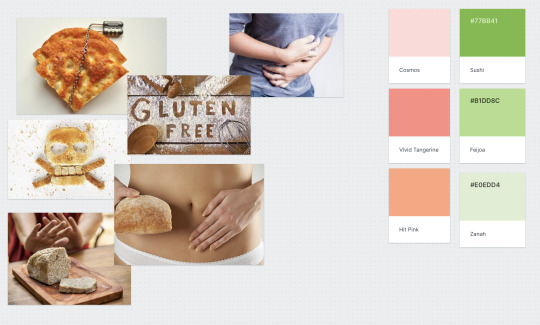
Poster Text Brain storms......
when considering the text for the poster I came across a website that explains more of the problems surrounding stigma, only this time it is in relation to the Gluten jokes that are out there. here is a small dialogue extract.
“The joke only makes it harder for the people with the actual problem.”
“I am actually INSANELY well versed in humor. Which is why can spot a lazy, overplayed joke from a mile off.”
“People don’t take it seriously BECAUSE of the jokes. And it’s not that they have to go away entirely. But they’re tired. The meme is dead.”
“It’s time to retire that punchline. And “you can’t take a joke” is the classic line of bullies.”
“The jokes are what make it a punchline. Make people think ALL of it is fake. Because look at this joke. It just mocks THE ENTIRETY of the condition. It makes no effort or indication that it is about fakers.”
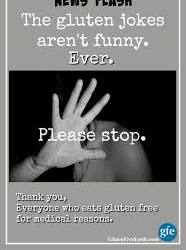






Here are some more drawings, of what I would like to create, in a very pre phase stage.
0 notes
Text
Podcast Plan
To layout my plan in this short brief post. Specifically in terms of what will need to be organised.
Find Theme tunes for my show
Podcast artwork.
For Episode 1:
Final script points. to aim at getting a conversational tone I will bullet point my main informational points and talk about them instead of reading it off of a piece of paper word for word. this will also give room for flexibility when it come to recording as I will be able to change it up id I need or delete/add in bits and bobs as necessary. the flow of talking will help to decide weather parts work or don't work with what i'm trying to say.
acknowledgement to sources as I go, to articles where I acquired my information.
set aside a time to record and listen back and record again (I am leaning towards either a Saturday or a Sunday to do this for episode 1)
Book out equipment, mics etc
record
edit
For Episode 2:
Develop the questions id want to ask and have a first question (this episode is more chill in terms of structure, I want to make sure I have some questions ready to direct conversation but it is simply a conversation and therefore I want it to still retain the freedom of fluidness that conversations have. I also want it to be directed by the people I am interviewing as coeliac is the condition they live with.
booking and organise a group zoom for my interviewees
zoom and record zoom
edit
Review the process and find any areas that can be revisited. and improved upon.
0 notes
Text
Podcast Post #2
My Script and relevant notes.
one idea is to be unpacking silly comments made . at the beginning of Both the episodes
dispel the theories that are contributing to the misconceptions.
example. upon researching I came across a frequently searched question...
Episode 1: The context
[Intro music]
Introduce the show
Hello, Hello! everybody, this is Lucy from Media 220 The University of Waikato and you’re listening to the Sliced Bread podcast, the limited mini show all about Coeliac! the show[] that aims to inform the uninformed.
To give everyone out there a basic rundown on coeliac disease in the hopes to eliminate the misconceptions around it.
Introduce the guest and episode
Today , I’ll discuss everything there is to know about coeliac disease in an easy to digest way. I'll making two points _______.
[the episode topic: include a teaser to hook listeners (Something pathos)].
What is Coeliac Disease?
What are the common misconceptions/Misunderstandings? along with what the issues/problems that can arise from lack of knowledge/misconceptions about Coeliac, and the problem they can cause?
Right! time to slice some bread and get into it!
[Outro music ]
Annoying thing found on the internet to unpack
People also ask? Can you kiss someone with coeliac?
[improvise and read it word for word]

The response labels coeliac as a gluten intolerance, well, it is actually not an intolerance and that is not the right what to justify why you can kiss someone with coeliac (which of course you can obviously)
This leads to my first section of what actually is Coeliac disease
Topic 1: What is Coeliac
Coeliac disease is actually an autoimmune condition.
Autoimmune conditions/diseases are by definition a type of disease that occurs when your body's immune system attacks your own healthy cells and tissues by mistake. Normally, your immune system works to protect you from harmful pathogens like viruses and bacteria, but in the case of autoimmune diseases, it mistakenly identifies healthy cells as foreign invaders and attacks them. (healthlinehttps://www.healthline.com/health/autoimmune-disorders)
In coeliac disease, the immune system mistakes substances found inside gluten as a threat to the body and attacks them.
Those substances are a particular protein found in wheat, barley, and rye. This triggers the immune response that specifically attacks the small intestine lining.
Your small intestine is lined with these small fingers called villi and in simple terms , they are responsible for absorbing nutrients. inflammation and damage to the villi which is a flattening of such, done by the gluten protein, results in malabsorption of nutrients.
Genetic and environmental factors can be the reason for triggering dormant coeliac disease in people Coeliac disease is linked to the Human Leukocyte Antigen (HLA) gene system, and people with one of three specific genetic factors are more likely to develop the disease, but possessing one of these factors is not a guarantee that you will get it.
What this means for the person who is undiagnosed with Coeliac is they will experience a range of horrible and unpleasant uncomfortant symptoms until they can be correctly diagnosed and undertake the only known treatment. A Strict Gluten-free diet.
Before I get into trying to unravel the GF stigma and misconceptions that just need to be eliminated. I will give a rundown of how malabsorption can affect someone as well as the general symptoms of having untreated coeliac.
According to the World Gastroenterology Organization, celiac disease may be divided into two types: classical and non-classical.
In classical celiac disease, patients have signs and symptoms of malabsorption, including diarrhea, steatorrhea (pale, foul-smelling, fatty stools), and weight loss or growth failure in children.
In non-classical celiac disease, patients may have mild gastrointestinal symptoms without clear signs of malabsorption or may have seemingly unrelated symptoms. They may suffer from abdominal distention and pain, and/or other symptoms such as: iron-deficiency anemia, chronic fatigue, chronic migraine, peripheral neuropathy (tingling, numbness, or pain in hands or feet), unexplained chronic hypertransaminasemia (elevated liver enzymes), reduced bone mass and bone fractures, and vitamin deficiency (folic acid and B12), difficulty losing weight, late menarche/early menopause and unexplained infertility, dental enamel defects, depression and anxiety, dermatitis herpetiformis (itchy skin rash), etc.
Silent celiac disease is also known as asymptomatic celiac disease. Patients do not complain of any symptoms, but still experience villous atrophy damage to their small intestine. Studies show that even though patients thought they had no symptoms, after going on a strict gluten-free diet, they report better health and a reduction in acid reflux, abdominal bloating, and distention and flatulence.
Here is the list of symptoms I will read out both as a child and as an adult, some are more common in children and a person can display some symptoms over others.
Abdominal bloating and pain
Anxiety and depression
Attention-deficit/hyperactivity disorder (ADHD) and learning disabilities
Cognitive impairment
Constipation
Damage to tooth enamel
Delayed puberty
Diarrhea
Fatigue
Failure to thrive
Gas
Headaches or migraines
Iron-deficiency anemia
Irritability
Itchy, blistery skin rash (dermatitis herpetiformis)
Infertility
Joint pain
Loss of Hair
Missed periods
Mood swings
Mouth ulcers and canker sores
Nausea and vomiting
Osteoporosis and osteomalacia
Pale, foul-smelling stools
Peripheral neuropathy
Reduced functioning of the spleen (hyposplenism)
Seizures and lack of muscle coordination
Short stature
Weight loss
Segue (can be a sound effect, short musical clip, or a phrase)
Topic 2: What are the common misconceptions/Misunderstandings? And What are the issues/problems that can arise from lack of knowledge/misconceptions about Coeliac.
Okay so i’d categorise this question into two areas. The diagnoses misunderstanding and then the social misconceptions and understandings which lead and cater to the Gluten free stigma.
Living with Coeliac disease can be challenging due to the need for a new and permanent lifestyle, leading to social and emotional turmoil for those diagnosed. The restrictive nature of the gluten-free diet can cause social isolation. Coeliac disease is much more common than previously thought, and it is increasing while remaining largely undiagnosed. Individuals with coeliac disease face physical, mental health, social, and financial burdens.
Misconceptions about its prevalence and symptoms can lead to delayed diagnosis and treatment, and its rarity and similarity to other gut issues can result in missed diagnosis. In the US and New Zealand, the prevalence ratios are similar, and the most alarming statistic is that an estimated 83% of people with coeliac disease are undiagnosed or misdiagnosed.(LaPook, 2009) It takes an average of four years to receive a correct diagnosis due to over 200 known symptoms triggered by even a small amount of gluten. This is particularly challenging given that 80% of food products contain gluten, not to mention items like tea bags and paper straws (What Is Celiac Disease? – Celiac Disease Foundation, n.d.).
stigma, feelings of inadequacy, and exclusion from normal social roles. Stigmas also interfere with maintaining positive self-concepts, which tends to lead to reduction in social network and support systems.
Social stigma is the disapproval of, or discrimination against, an individual or group based on perceived characteristics that serve to distinguish them from other members of a society.
the gluten-free thing is just a fad, promoted by food companies "as a way of making money", an attention seeking thing, a way to eat ‘healthier’ which is interesting because eliminating food from your diet that you dont need to eliminate for actual health reasons is actually not the greatest for you either and its always worth consulting s docoter anyways before removing certain foods from your diet
For these people, the phenomenal popularity of gluten-free diets has been both a blessing and a curse.
The Curse
There is an importance of distinguishing between food preference and food-related sensitivity, allergy, and/or disease. Even trace amounts of gluten can cause extreme illness for some individuals with gluten-related health issues. The growing popularity of the gluten-free diet has resulted in increased demand for gluten-free food products, but it has also led to misconceptions about what constitutes gluten-free food. On the other, it’s born a storm of misconceptions about what actually constitutes gluten-free food, placing celiacs at risk of ingesting gluten through products advertised as so-called gluten-free.
Celiacs often feel pressure to disclose their disease in social situations or risk being misunderstood as following a gluten-free lifestyle.
Some people afflicted with celiac disease say their disorder isn't always taken seriously when they eat out. "The biggest problem I experience is that restaurant servers don't understand the difference between being celiac and going gluten-free as a lifestyle choice," Deschamps says. "You can see the reaction where they think I'm just trying to lose weight or on a fad diet. I see eye-rolling."
"A lot of people who don't know much about [celiac disease] liken it to the Atkins diet," Lewis says. When she tells people that she avoids gluten for medical reasons, she says, "in many cases, I'm viewed as being difficult or seeking attention instead of just trying not to get sick."
"Because so many are doing gluten-free as a lifestyle now," she says, "I'm embarrassed to ask for a gluten-free meal because of people judging me."
Adding to this for me… growing up im guilty to say i was embarrassed to eat out with my mom because shed have to ask for gluten free food and check and …. It wasnt making a big deal…. But i always felt that people would be thinking we were being picky or being karens as it has happened before.
The Blessing
More available gluten free foods "it was virtually impossible to find gluten-free products, and if you did, they tasted terrible."
Clear food labeling and taking dietary restrictions seriously could decrease the risk of cross-contamination and reduce the need for individuals with gluten-related health issues to disclose their disease. People need to avoid condescending attitudes towards the gluten-free diet and to respect individuals' dietary restrictions without judgment
Unfortunately, such people who simply see a health halo around gluten-free may unwittingly be making life more challenging for those with celiac disease, by contributing to an environment where food servers have come to dismiss gluten avoidance as a silly fad that isn't worth taking seriously
Segue (can be a sound effect, short musical clip, or a phrase)
Outro:
All right, I hope you enjoyed that episode about Coeliac Disease and some of the issues around misconceptions and how important it is to be careful about what we say and respond to a person's disclosure to their disease. thank you the listener for listening all the way through. I hope that you take some valuable information from this episode and apply it in one way or another into your life.
[next time you're about to judge someone on their gf choice of meal in the cabinet at the cafe, think, is it really your place to say something, is it affecting you. No!, is it any of your business. No. and also yes barbra i can eat bloody potatoes]
I look forward to serving you in the next episode as well, where I'll be joined by 4 people in my life who all have coeliac disease for an open discussion around their experiences with it. I hope to see you then. goodbye!
[Closing music]
Episode 2: The Interview
People I could interview;
My Mother (Carla)
My Auntie (Johanna)
My Grandma (Merle)
Family Friend (Tracey)
Uni Friend (Lydia)
Uni Friend (Aishlin)
Other family members
Other Uni friends
Friends of my mothers who have coeliac
The Questions Brainstorm...
[making sure my questions are open ended not yes or no] the questions are more of a guide.
tie things up at the end with quick yes no answers
what was the most difficult aspect of having to transition to a Gluten-Free diet? is there anyway that-that experience could have been avoided or improved?
what's the biggest change you had to make.
how has having Coeliac impacted you socially ?
the perception others have
what was your diagnosis story?
what's the silliest thing you've been asked because you've gt coeliac/ the most annoying
what do you wish people knew about coeliac? or what other people would do when they realise you've got coeliac (or anything else for that matter)
What's an awkward social moment that you've had with coeliac?
Start with a broad question to get people talking about the now and currently.
The interview could flow from the persons experiences with before getting diagnosed, then moving to living with living with it, then to after diagnosis
This post was to get the first basic drafts for my podcast episodes! it will be an area that will get done up more as I continue to refine the layout.
Upon recording my first episode, the things that when wrong were:
I stumbled on what I was saying and on top of that I was trying to hard to pretend I knew what I was doing...to put it simply it was very cringe worthy so I am not sharing that clip here despite the fact that this assignment requires test clips (if it means I fail or lose a decent grade on this assignment, then so be it I will sleep at night knowing my dignity is still in tack....*I'm sorry Rodrigo* )
I think the tone I was using worked well, I was trying to speak clearly while keeping on the more uplifted and cheerful side .
I can't speak properly, I think I have a lisp because I cannot pronounce my words properly
0 notes
Text
Podcast Post #1
I am planning to produce 2 episodes under 10minutes this is to help segregate my two main talked out ideas....being general factual information and personal stories, talking to people with coeliac.
Description
A simple easy to understand run down of Coeliac. Symptoms, social issues, and the Stigma
Details
my podcast platform would ideally be Spotify but also possibly Apple, and my photography campaign will hopefully tie in and be promotion to this podcast.
I will be recording this podcast in my flat room and is pretty quiet and conveniently accessible.
The first episode.
tone: informative, educational.
Plan the layout of the episode which will involve me researching and pulling information from quality sources. I will have to organise the flow of the episode and in which order I'll speak of the relevant information. then it will be a matter of putting together a script and gathering the equipment, scheming a time and making a base recording.
taking into consideration the three act structure:
Act 1 : My introduction, introducing me a very brief expiation of the project and aim, and how I got to there (there being the topic of coeliac and a podcast on it)
Musical intro
Introduction
Promise – tell briefly what this episode will be about - Tell them exactly what they are going to hear in this episode.
Act 2 : My Research findings with Explanation and examples in three Categories,
What is Coeliac Disease?
What are the common misconceptions/Misunderstandings?
What are the issues/problems that can arise from lack of knowledge/misconceptions about Coeliac?
Act 3 : Summarising Act Two with a clear understanding of what actions can be taken to prevent further unnecessary scrutiny by the general ignorance of people. Also leading this episode into its complimentary component of interviews and personal experiences.
Script ideas
Word for Word:
Intro: Brief summary of the episode’s contents. Introduce yourself, your podcast, and any guests. (Duration: _____ )
[Sponsor message]
[Theme music]
Topic 1: _______________ (Duration: ___ )
Main point
Supporting points
Data, quotes, or other information
Segue (can be a sound effect, short musical clip, or a phrase)
Topic 2: _______________ (Duration: ___ )
Main point
Supporting points
Data, quotes, or other information
[Sponsor message]
Topic 3: _______________ (Duration: ___ )
Main point
Supporting points
Data, quotes, or other information
Outro: _____ (Duration: ____ )
Recap
Call to action
[Closing theme music]
The Second Episode
tone: conversational, light.
My second episode will look at following an interview format. where I will introduce the episode and the people I'll be interviewing and I will have a bunch of questions I would want to hear and have discussed. however I would want to have some flexibility for input and direction from my guests. this includes having an open discussing catering to hat they may want to get across or have said. this episode will potentially be longer than 10 minutes do to the nature of conversation and discussion.
Interview:
Intro: Brief summary of the episode’s contents. Introduce yourself, your podcast, and any guests. (Duration: _____ )
[Sponsor message]
[Theme music]
Guest introduction: include a guest bio, including their title, experience, and any relevant accomplishments. Thank them for joining the podcast.
Question 1 (Duration: ____ )
Question 2 (Duration: ____ )
[Sponsor message]
Question 3 (Duration: ____ )
Outro: _____ (Duration: ____ )
Recap
Call to action
[Closing theme music]
Gathering the information and referencing/acknowledging correctly
Theme Music
I've decided to move all my information gathered on milanote and add it to the blog to keep it all I one area.
here are some articles I was reading around the Gluten-free Stigma
"With the push to a gluten-free diet, the disease is no longer taken seriously. If you go into a restaurant now and the server hears you’re gluten-free … they often don’t consider it a medical condition.” Geller explains, “The real drawback is because there’s not yet a medication — and in America, we equate medications with serious conditions — people are not going to take it seriously."
"People with celiac disease often suffer from stigma, feelings of inadequacy, and exclusion from normal social roles. Stigmas also interfere with maintaining positive self-concepts, which tends to lead to reduction in social network and support systems."
https://www.healthcentral.com/slideshow/12-celiac-disease-and-gluten-myths-debunked
above is the link to a website that debunks not of the myths going around about coeliac disease.
0 notes
Text
Production Plan
For the future I am going to utilise Milanote in organising, planing and formulating ideas. Here is the first steps and it is to be continued.
My Methodology
Define the objective of the campaign: to raise awareness of coeliac disease and its impact on individuals' lives.
Identify the target audience: individuals aged 18-24 who are not aware of coeliac disease and those who may hold misconceptions about the condition.
Develop a creative concept for the photography media output and podcast: capturing powerful images showcasing the challenges faced by individuals with coeliac disease and exploring contemporary photography and art for ideas.
Determine the technical requirements for the campaign: camera and lens type, lighting and backdrop requirements, and any post-production requirements.
Conduct a practice photoshoot and podcast recording to get a rough idea of what is wanted for the final photoshoot and podcast recording.
Conduct the final photoshoot and podcast recording, including arranging equipment and props, scouting for a suitable location, and capturing the images.
Edit the photos and the podcast recordings, and select the most impactful images to enhance their impact.
My Timeline
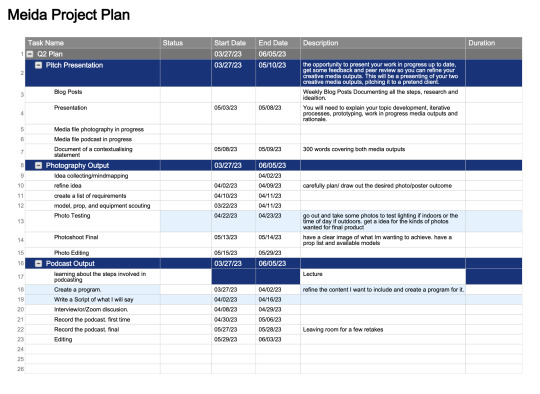
My Targeted Outcomes
The objective of this campaign is to increase public awareness and understanding of coeliac disease by dispelling misconceptions and reducing stigma. To achieve this, the campaign will use creative visual storytelling through photography and personal experiences shared in the podcast to evoke an emotional response and encourage empathy towards those with the condition. The campaign aims to create a more supportive and inclusive society where the needs of those with coeliac disease are respected and normalised. The success of the campaign will be measured by engagement, reach, and positive attitude changes towards coeliac disease.
0 notes
Text
Further Attempt at Defining Aim
Angle
• How are you going to approach your topic and chosen media format?
I am going to Approach my Topic through an empathic lens with the understanding that Coeliac Disease can be a difficult subject for some people to talk about.
I want to take a creative informative angle at bringing awareness to the realities of what living with coeliac is and can be like. I want to bring awareness into a university space in a light and fun way while still being able to achieve raising general awareness. I am going to approach this topic as someone who hasn't yet been diagnosed with coeliac but has a strong family history of it and as someone who has grown up in a house with people who have it. I'm going to take it as an opportunity for me to learn more about an autoimmunity disorder that is hereditary and comes with the highest chances of me developing it.
• Based on your research did you find any interesting aspects of your topic that can be explored?
What I found interesting about my topic is the lack of creative awareness campaigns there are on coeliac, like no photography and barely any art related projects beside the short film Glutened . This has encouraged me to explore deeper down the road to see if it's even possible to produce a creative output like that. I also found it interesting the amount of mentioning of peoples misunderstandings that can just get very annoying very fast for anyone with coeliac or any dietary requirement no matter the reason.
• Define your angle.
... work in progress for the time being ...
taking an Awareness angle through providing information and a way my consumers can empathicly relate
in resent discussion with my Lecturer Inadvertently I simplify my overall aim and purpose to raise awareness in an informative way so that people are be equiped to respect and understand. hopefully;ly meaning the elimination of the stigma and silly comments made. and so that coeliac disease and any diety requirement is just normalised.
clearing up misconceptions.
Tone
Because I'm leaning definitely towards a podcast I think I want to keep the sound/tone casual and cheerful to add to the lighthearted discussion. the podcast I will aim to make it 10 minutes or a few short episodes to cater to the short attention span of us humans. a discussion element to my podcast will help make the topic feel more real and relatable. hearing others talk about there struggles and experiences allows the listener to empathise.
Depending on what my photography will be aimed at, incorporating visual hierarchy with the use of symbols, signs, icons, negative space, a main point of focus, consistent branding and colours, and clear but fun typography, will all add effectively. my next steps from here is clarifying what I want to depict, finding images and brainstorming visual elements that could represent coeliac and then deciding on layout and what will be the most effective.
in terms of colour palette coeliac is associated with the colour green. I also like the peachy earthy tones as well as this ties into the shades commonly associated with body organs like like pick and intestines. also a soft pink is gentle and can be associated with calm and warmth. this can help ease the intense energy that often surrounds campaigns and will be more digestible
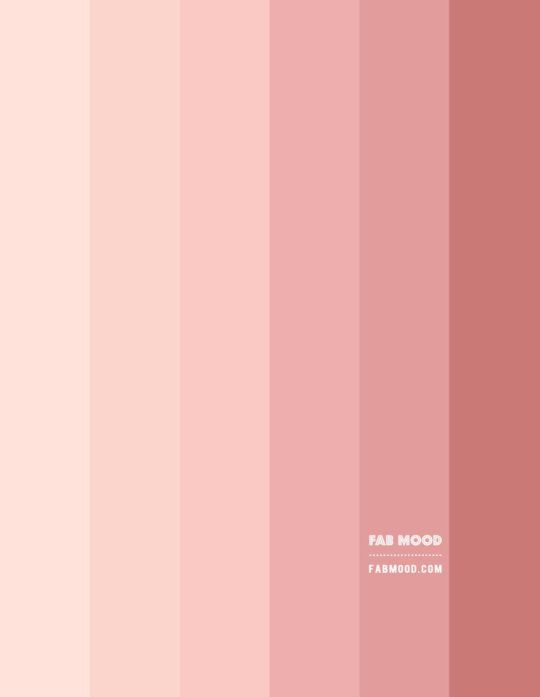
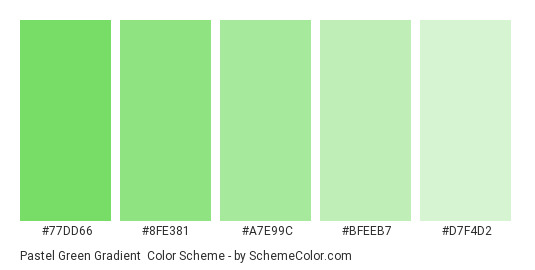
Health Related Photos
They are usually animated and cheerful like such:

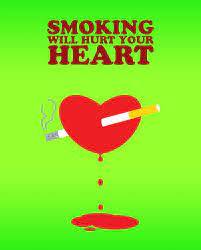

or they are dark and serious like such:
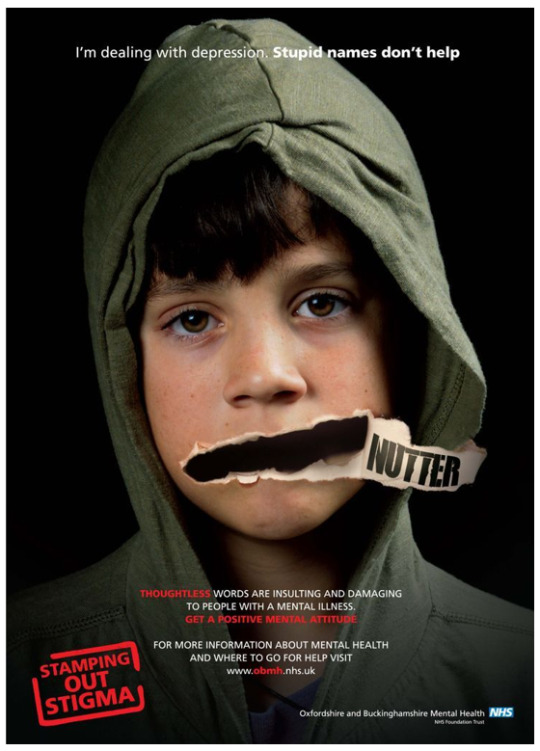
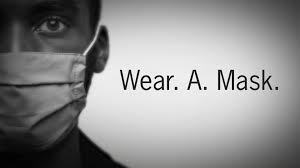
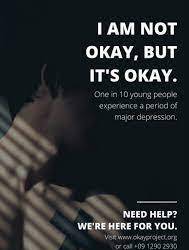
I want to combine the two.


Rhetoric
throughout my media outputs, I am aiming to combine two types of Rhetoric to present my argument, which are:
Logos: Comes from a logical perspective based on data and factual information. This will be to help cater to those who understand a situation better on factual evidence or logical explanations of things. I want to remember to link and justify my reasons for my choices with facts and research to make for a more compelling Campaign.
Pathos: Appealling to the audience’s emotions to try to elicit a response from them to win them over. given the coeliac is a health related topic, it will be good to try and use Pathos Rhetoric to get people feeling and understanding some of the ailments that Coeliac can cause.
in resent discussion with my Lecturer Inadvertently I simplify my overall aim and purpose to raise awareness in an informative way so that people are be equiped to respect and understand. hopefully;ly meaning the elimination of the stigma and silly comments made. and so that coeliac disease and any diety requirement is just normalised.
Clearing up misconceptions
Using the video Glutened to influence how I approach my Photography project. what I liked about it was the artistically way. they displayed coeliac and getting diagnosed in a nutshell, summarised the experiences. also the narrative structure created a empathetic standpoint through relatability.
0 notes
Text
A Rather Decent While Later....
#2 The Media Outputs I'm Leaning towards.
Podcast
One of my chosen media outputs at this stage is leaning towards a podcast, podcasts can be fun and light and informative at the same time, because your engaging with your ears you can hear tone and expression which aid in getting your message across in a certain way so a podcast can utilise vocal tone to help support a lighthearted positive approach to a topic that for some people is hard to talk about.
A podcast is a great way to get a bit more in depth on what coeliac actually is and its a great way to include other people and their experiences (if they're open to sharing) tat why the listen can be transferred on a more empathetic level to more understanding on this topic.
I am an active podcast listener! and I find them easy to listen to when I am cleaning, cooking, walking to class or traveling in the car. depending on what kind of art I'm doing and what podcast im listening to, I can sometimes listen while I paint.
I never once considered making one let alone knowing how to do that! I think this is a fantastic opportunity to learn, even it it all goes south I will have taken away at least something from the experience.
I took inspiration from a childhood memory of my step sister and I watching 'Jono and Ben' and how they would sometimes go around and ask people very random questions. I thought about this and maybe (maybe) conducting something like this on campus to see how many people know what coeliac is or just know anything about it in general.
Another idea I had was interviewing some people in my life that I know ave coeliac and getting their story, their feelings, and something they struggled with, even something they might have appreciated like getting diagnosed was a relief and they could finally feel better because they knew what to do.
Here are some podcasts I listened to on Spotify that I thought were really cool and I could defiantly take inspiration from them.
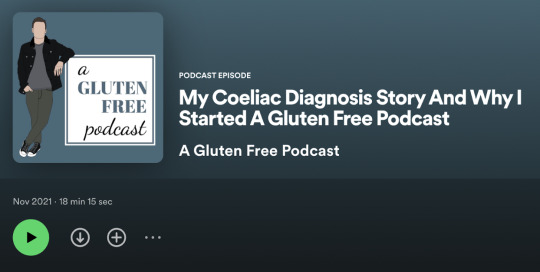
This is a great episode giving a more personal outlook into what it is like being undiagnosed and the turmoil it can create, to some of the severities that sometimes aren't taken seriously or are often looked over. Ie.. all the other health problems having coeliac can cause.
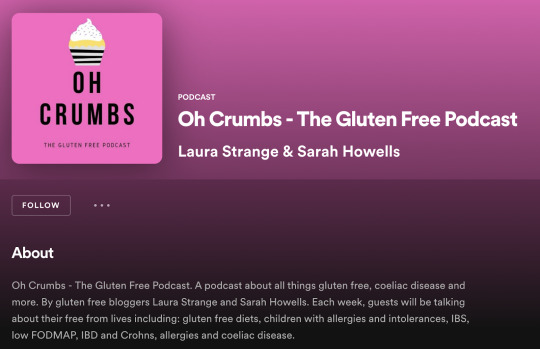
The "oh crumbs" podcast I liked. It takes a positive outlook on some of the different aspects of being diagnosed with Coeliac and goes into details about how this can look when eating out or caring for children with coeliac.
Another cool podcast with similar ideas ...
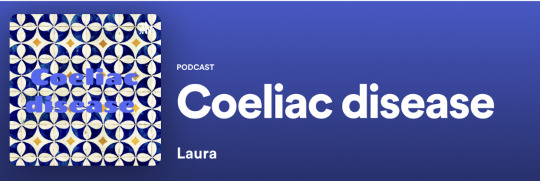
I am thinking the podcast can be both informative as well as enabling listeners to become aware. This way i can begin with explaining:
What coeliac disease is, how it affects the body, some statistical information
The individual problems and the social problems
Then having an open planned discussion with some different people who are living with coeliac and their experiences with:
Adjusting to life
Diagnosis experience
Pre coeliac symptoms
Funny stories
Their thoughts on why they think coeliac should be talked about.
So far my first thoughts on who I would ‘interview’ would be my mom my grandma and my auntie. But because my audience is aimed at Gen. Z specifically post and uni young adults, I'd like to get the experience and thoughts from a uni students with coeliac and whether or not having coeliac while study is impactful or not as impactful on their wellbeing. I will later play around with forming a script and having some coverstational questions.
Too be added to and grown on....
0 notes
Text
A Rather Decent While Later....
The Media Outputs I'm Leaning towards.
Photography
i'd then like at least one of my media outputs to really pull an artistic approach to awareness of coeliac backing the podcast with either photography, painting or a short film. To creatively display the feelings that living alongside coeliac can create. This will involve looking into feelings both physical and emotions and how those feelings have been visually displayed by other artists, not necessarily around coeliac in specific but then I can see how certain feelings can be displayed visually. The elements of photography can be used to tell a story and that story can be used to convey a message. consumers of information are visual and therefore having images to grab there attention can be a good way of passing on information and/or awareness.
Images I like that I feel speak to their audience interns of their emotion and thought provoking nature
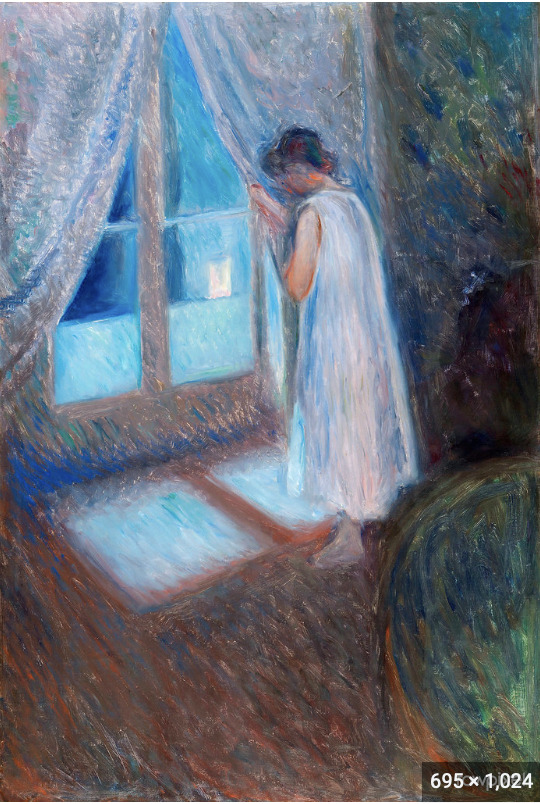
Edvard Munch
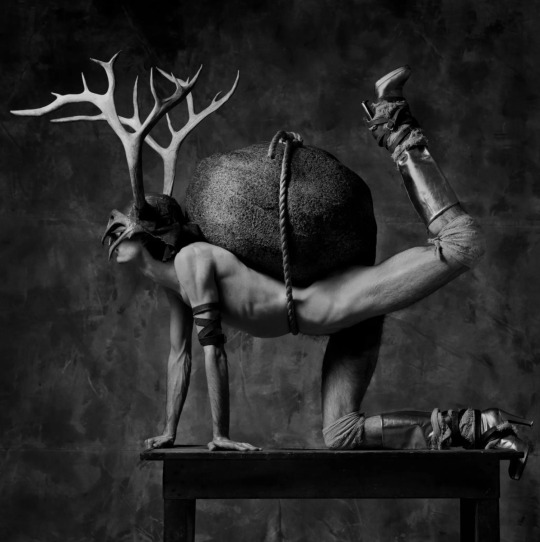
Erwin Olaf
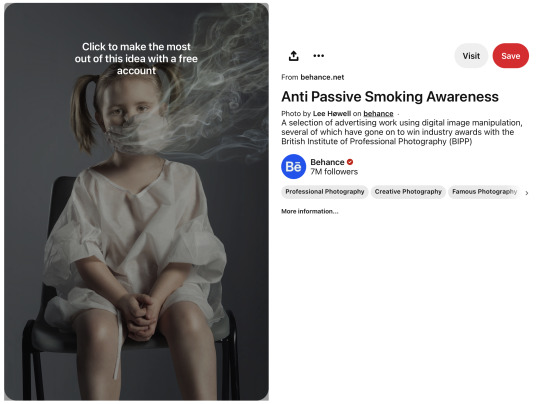
Lee Howell
not to degrade myself but I'm not the best at photography. I think there is lots of room for improvement in the field of art involving cameras. I do, however, thoroughly enjoy catching moments and the aspect of comprising images to make them meaningful is even more appealing! so I'm going to start here.
In the 3rd class lecture we touch on digital photography and there was something mentioned that really resonated with me and that was the fact that photos and images in general and very accessible and easy to consume, as it it takes less time to take in the information displayed in a photograph than it is to say read an article, unsaying this, that isn't necessarily true for all photos but in a generalisation it is.
Despite my topic of Coeliac Disease, I found a cool journal entry that talks about the power of photography I raising awareness. the page only talks in terms of environmental issues but I felt there was some all rounding truths that can be apply to raising awareness in any situation.
Photography has the power to change peoples’ hearts, minds, and actions. Newspapers can write about environmental issues all day, but unless there’s photo evidence, many readers will just continue on with their day - maybe taking with them some ‘gee-whiz’ facts.
Powerful photos, however, can inspire people stop, take notice, and (maybe) take action.
Photos transform abstract ideas into concrete reality, and provide undeniable proof of change, destruction and abuse. This is why photography is one of the most powerful tools for raising awareness of climate change and environmental/wildlife issues.
- Christopher Davila
A passage I got from another online article,
It is understood that photography can help to create social change, or at least to help it happen slightly faster. Just by being able to take a picture and immortalize a moment that reflects a position on a subject or a concern – and its consequent publication in the appropriate medium – is perhaps one of the most effective ways to achieve this state.
I really enjoyed reading this article because it talked lightly on the ins and outs of using photography as a tool in raising awareness, as well what that might look like and that you don't need to be a professional photographer to do this effectively.
I aim to raise awareness of coeliac disease and promote better understanding of its impact by creating a visually engaging representation through photography. I hope to encourage viewers to connect with and experience ideas around coeliac in a unique and visceral way. It's more than an allergy but doesn't necessarily require segregating those who suffer from it, from our social customs. I also want to emphasize that everyone's experience with coeliac is different. I plan to use semiotics to communicate through an awareness campaign poster or creative photography portfolio, with the goal of making it impactful enough to be used beyond this assignment and university setting, potentially becoming a part of coeliac awareness campaigns in the future.
there is many roads I could approach this topic but ill do more research to try and find which road or which part of having coeliac dieseas I want to raise awareness for... for example, if I want to raise awareness on coeliac to help people understand as so they stop saying things like "can you eat potatoes" or "a little bit won't hurt" then I will want to maybe outline what gluten actually is... and the what coeliac actually is and how an autoimmune disorder is just a bit different from an allergy or a intolerance.
Maybe my awareness will take the root of highlighting the symptoms that can happen or the physical mental consequences if someone who has coeliac eats gluten.
Its funny actually because I recently meet this amazing person! and they have been diagnosed with coeliac however, all their doctor did was give them some pamphlets and say..."don't eat gluten and you'll be alright" and they didn't actually find out a lot of the stuff about what they were diagnosed with.
I have to remember that this is a touchy subject for some people so I have to approach it with the greatest amount of empathy and compassion as everyone has different thoughts on their own coeliac journey and it is a matter of finding the right part to raise awareness on that won be upsetting but more lighthearted in a way. "By the way guys... coeliacs a thing.."
At this point my specific aim is still a bit fluffy but I do feel I'm narrowing it down slowly and I believe that this will come with time and more research and talking to more people with coeliac to understand it better and which approach will be the most beneficial.
Below is a small first step brainstorm I made after a small about of researching. It was to hopefully trigger more ideas for me later on in my media research.
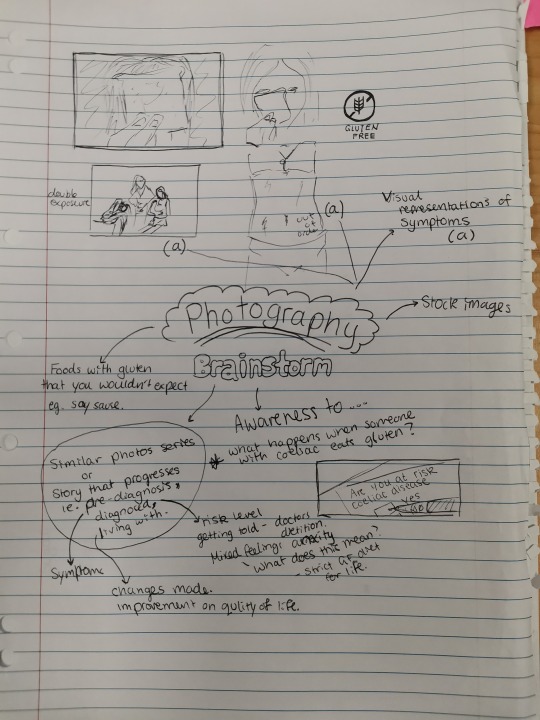
0 notes
